Transform any outdoor space into a captivating sanctuary with carefully chosen garden centerpieces that serve as striking focal points and conversation starters. Whether you're working with a sprawling backyard or a cozy patio, the right centerpiece creates visual interest, defines spaces, and reflects your personal style while enhancing the natural beauty of your landscaping. Garden centerpieces range from classic water features and sculptural elements to functional raised beds and whimsical fairy gardens, each offering unique benefits for different garden themes and maintenance preferences. These focal points not only draw the eye and create memorable impressions but also provide practical benefits like attracting wildlife, organizing planting areas, and creating vertical growing opportunities. From traditional fountains that add soothing sounds to modern geometric planters that define contemporary spaces, selecting the perfect centerpiece involves considering factors like scale, maintenance requirements, seasonal interest, and how the feature will complement your existing landscape design and architectural elements.
1. Tiered Water Fountain Gardens
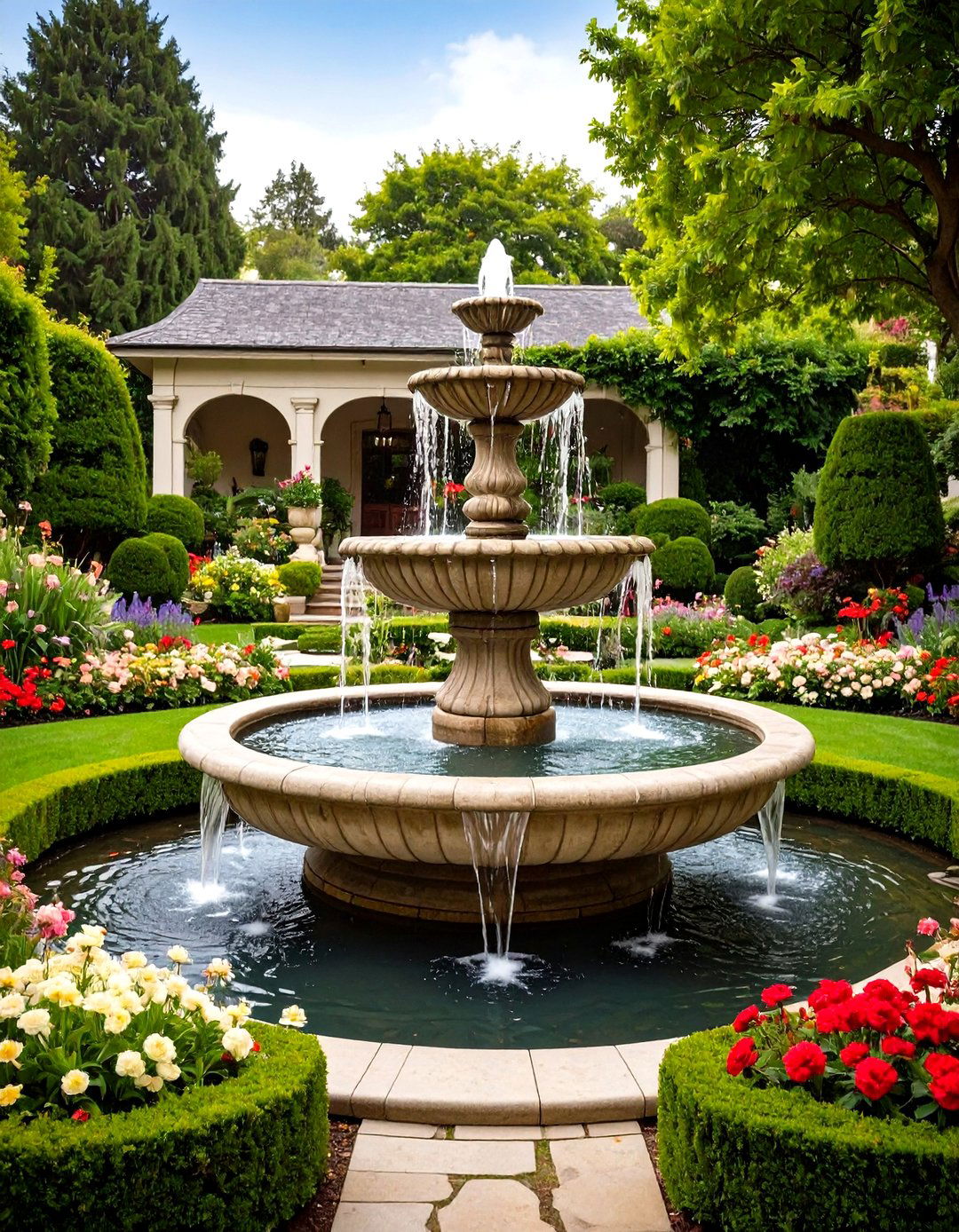
Picture cascading water flowing gracefully through multiple stone or concrete tiers, creating a mesmerizing focal point that transforms your garden into a tranquil retreat. These classic water features combine visual appeal with the soothing sounds of moving water, making them perfect centerpieces for formal garden settings or peaceful meditation spaces. Position tiered fountains in central locations where they can be appreciated from multiple angles, surrounded by low-growing perennials or ornamental grasses that complement the water's movement. The constant circulation helps aerate the water naturally while attracting birds and beneficial insects to your garden space. Choose from materials like natural stone for traditional elegance, cast concrete for durability, or decorative ceramics for artistic flair, ensuring your fountain becomes a timeless centerpiece that enhances your outdoor living experience year-round.
2. Raised Garden Bed Centerpieces
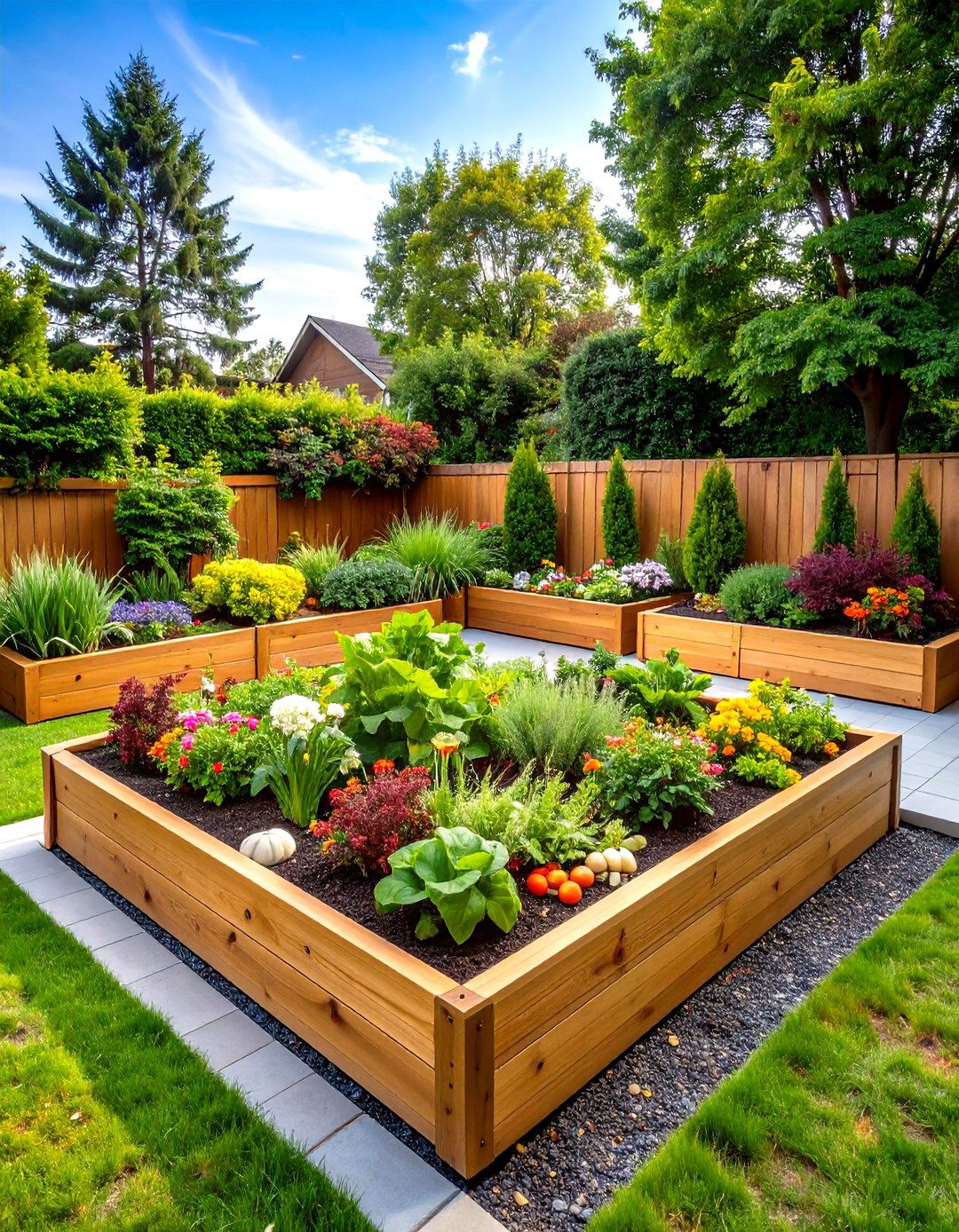
Elevated planting beds create structured focal points that organize garden spaces while providing excellent growing conditions for vegetables, herbs, and flowers. These practical centerpieces offer improved drainage, better soil control, and easier maintenance compared to traditional ground-level planting, making them ideal for gardeners of all experience levels. Design raised beds in geometric shapes like squares, rectangles, or even curved forms to match your garden's aesthetic, using materials such as cedar wood, galvanized steel, or composite materials for longevity. Fill beds with high-quality soil amendments and create striking displays using companion planting techniques, combining different heights, textures, and colors for visual impact. The elevated design naturally draws attention while keeping plants organized and accessible, perfect for showcasing seasonal displays, herb collections, or colorful flower arrangements that serve as living centerpieces throughout the growing season.
3. Garden Sculpture Focal Points

Transform your outdoor space with carefully selected sculptures that reflect your personality while creating compelling visual anchors throughout your garden design. Whether you prefer classical statuary, abstract modern pieces, or whimsical animal figures, sculptures serve as permanent focal points that provide year-round interest regardless of seasonal plant changes. Position sculptures strategically at pathway intersections, garden entrances, or as endpoints to garden vistas, ensuring they're appropriately scaled for their surroundings without overwhelming nearby plantings. Consider materials like bronze for timeless elegance, stone for natural integration, or metal for contemporary appeal, each aging differently and contributing unique character over time. Surround sculptural centerpieces with complementary plantings that frame rather than compete with the artwork, using simple color palettes and varied textures to create cohesive compositions that highlight both the sculpture and surrounding garden elements beautifully.
4. Container Garden Displays

Large decorative containers filled with carefully arranged plants create versatile centerpieces that can be moved, refreshed, and adapted to different seasons and occasions. These portable focal points work especially well in small spaces, on patios, or in areas where permanent installations aren't practical, offering flexibility that traditional garden features cannot provide. Choose containers that complement your outdoor décor, from classic terra cotta urns to modern fiberglass planters, ensuring proper drainage and appropriate sizing for your selected plants. Create dynamic arrangements using the thriller-filler-spiller technique, combining upright central plants with medium-height surrounding plants and cascading varieties that soften container edges. Seasonal container displays allow you to experiment with different color schemes, plant combinations, and themes throughout the year, making these centerpieces perfect for gardeners who enjoy changing their outdoor décor regularly while maintaining a strong focal point.
5. Fairy Garden Miniatures

Enchanting miniature landscapes capture imagination while creating delightful focal points that appeal to gardeners of all ages, especially those who enjoy detailed, whimsical garden features. These small-scale centerpieces combine tiny plants, miniature accessories, and creative themes to tell stories within contained garden spaces, perfect for tabletops, small containers, or dedicated garden areas. Select small-growing plants like miniature hostas, tiny succulents, or dwarf conifers that maintain appropriate scale while providing varied textures, colors, and forms that resemble full-sized garden elements. Incorporate dollhouse furniture, tiny figurines, miniature pathways, and other scaled accessories to create believable tiny worlds that invite close inspection and spark conversation. Fairy gardens require regular maintenance to keep plants properly sized and arrangements intact, making them perfect projects for detail-oriented gardeners who enjoy nurturing special garden features that bring magic and wonder to outdoor spaces.
6. Arbor and Trellis Structures
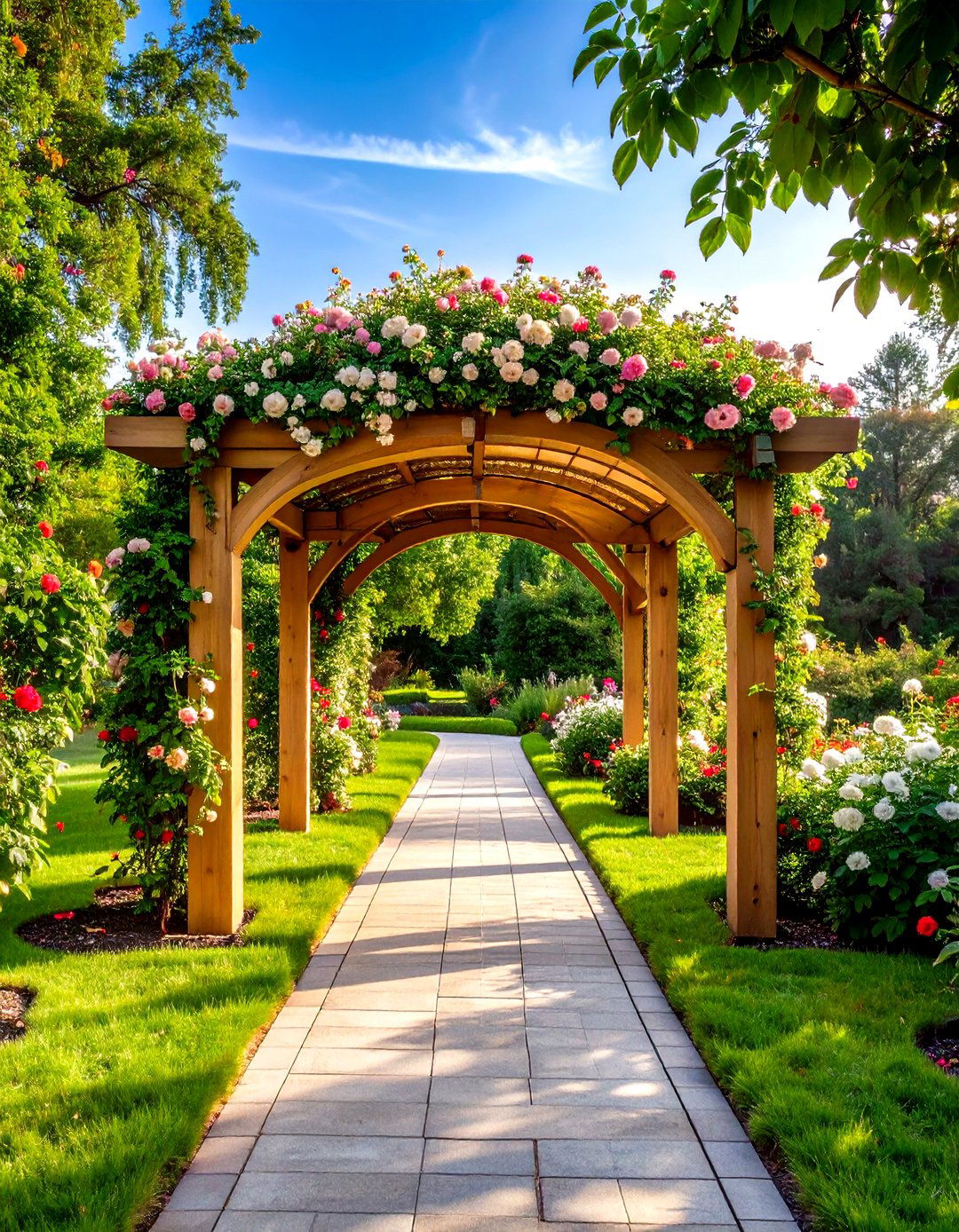
Vertical garden structures create dramatic centerpieces that add height, define spaces, and provide support for climbing plants while serving as architectural focal points in garden designs. These functional features work particularly well as entrance markers, pathway dividers, or backdrop elements that frame other garden features while creating vertical growing opportunities. Choose from traditional wooden arbors for classic garden appeal, metal structures for contemporary aesthetics, or combination materials that blend with existing landscape elements while providing long-lasting durability. Train climbing roses, flowering vines, or edible plants like grapes and beans to cover these structures, creating living walls that change seasonally and provide privacy, shade, and visual interest. Position arbors and trellises to frame views, create garden rooms, or serve as destination points along garden paths, ensuring they're properly anchored and scaled appropriately for both the climbing plants and surrounding garden elements.
7. Herb Garden Centerpieces
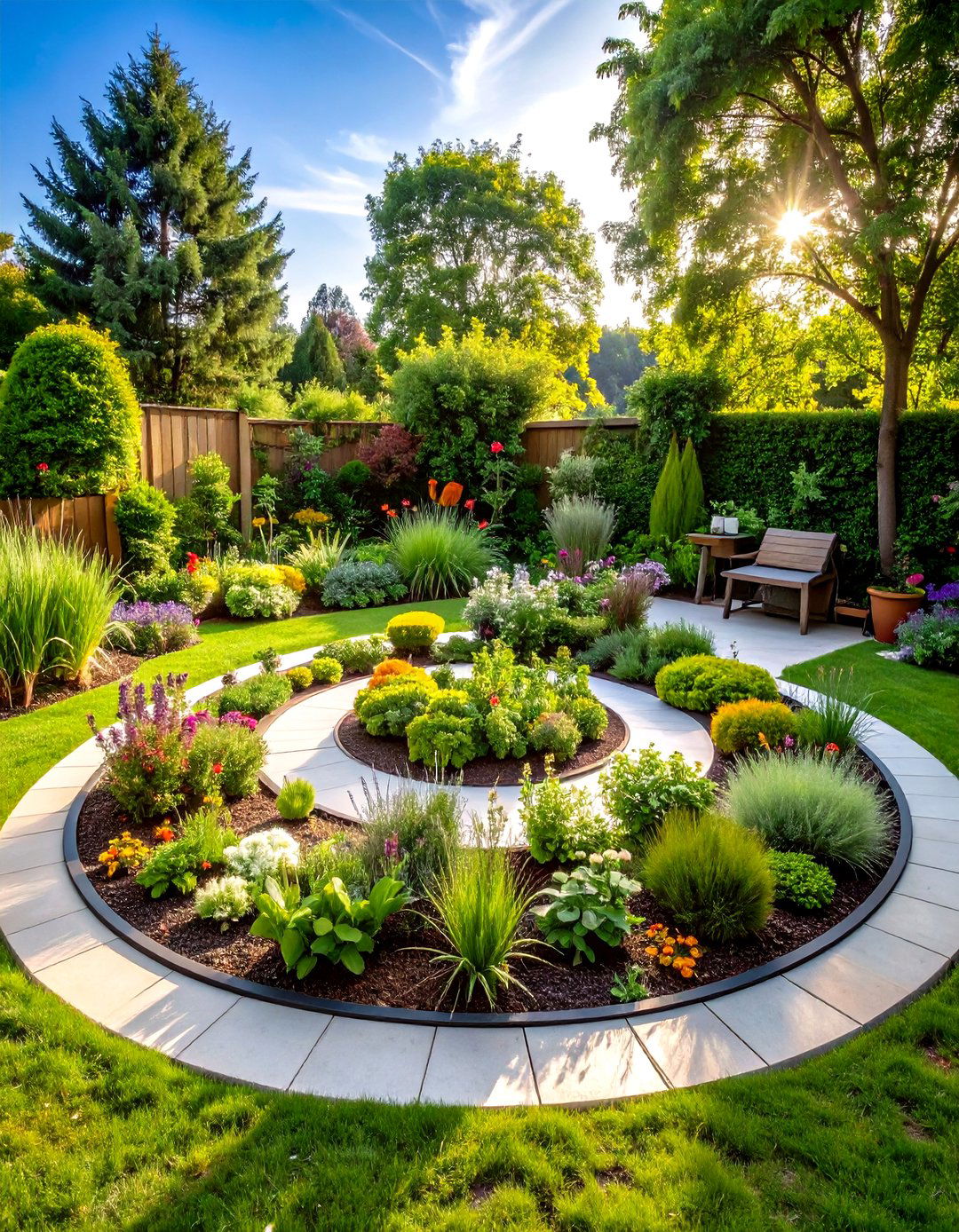
Functional herb gardens serve as aromatic centerpieces that combine practical growing space with attractive foliage, flowers, and fragrances that enhance outdoor dining and cooking experiences. These edible focal points work well in formal geometric designs, spiral patterns, or naturalistic arrangements that complement different garden styles while providing fresh ingredients for kitchen use. Organize herbs by growth habits, culinary uses, or aesthetic qualities, combining upright plants like rosemary and sage with bushy varieties like basil and oregano, plus spreading groundcovers like thyme and oregano for textural contrast. Include decorative elements like plant markers, small stepping stones, or vintage gardening tools to enhance the centerpiece's visual appeal while maintaining its functional purpose. Position herb gardens near outdoor dining areas, kitchen windows, or along frequently used pathways where fragrances can be enjoyed regularly, ensuring easy access for harvesting while creating attractive focal points that appeal to multiple senses throughout the growing season.
8. Modern Geometric Planters

Contemporary geometric planters create striking centerpieces that bring clean lines, bold forms, and sophisticated style to modern garden designs while providing excellent growing conditions for selected plants. These architectural features work particularly well in minimalist landscapes, urban settings, or contemporary outdoor living spaces where traditional garden elements might feel out of place. Choose planters in geometric shapes like cubes, rectangles, spheres, or custom angular forms, using materials such as corten steel, concrete, or powder-coated aluminum that weather beautifully while maintaining their structural integrity. Fill geometric planters with architectural plants like ornamental grasses, succulents, or plants with strong forms that complement the container's clean lines without competing with its geometric appeal. Group planters in odd numbers or create asymmetrical arrangements that add visual interest while maintaining the modern aesthetic, positioning them strategically to define outdoor spaces and create focal points that anchor contemporary garden designs.
9. Water Garden Centerpieces
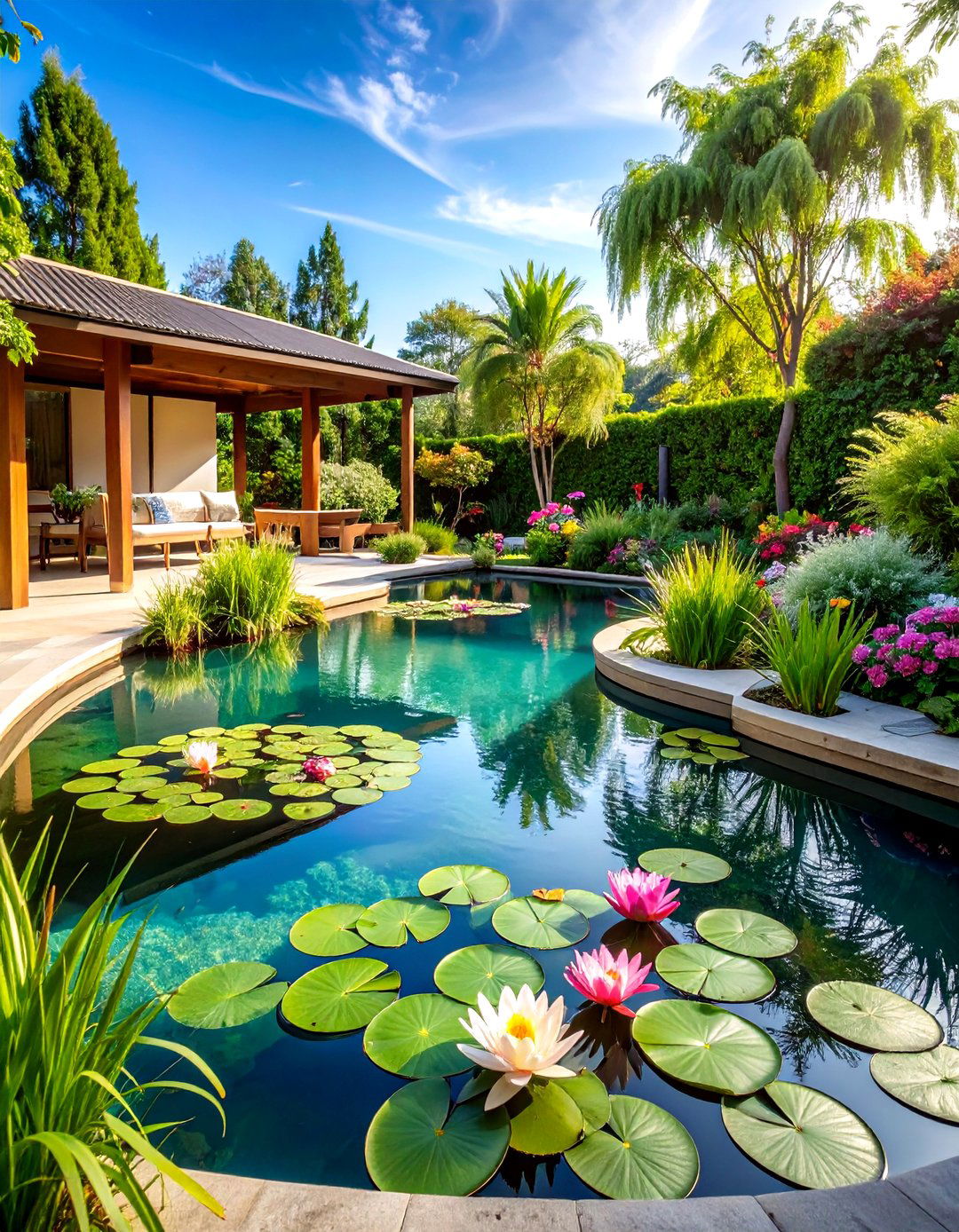
Self-contained water gardens create serene focal points that support aquatic plants and attract wildlife while adding reflective surfaces and cooling effects to garden spaces. These aquatic centerpieces work well in various sizes, from small container water gardens suitable for patios to larger pond features that serve as major landscape elements. Include floating plants like water lilies, marginal plants such as cattails or iris, and submerged oxygenating plants that maintain water quality while creating diverse aquatic ecosystems within your garden centerpiece. Add gentle water circulation with small pumps or fountains to prevent stagnation while creating subtle movement and sound that enhance the peaceful atmosphere of your outdoor space. Position water gardens where they can be viewed and enjoyed from multiple angles, ensuring adequate sunlight for aquatic plants while providing easy access for maintenance, creating centerpieces that offer year-round beauty and wildlife habitat.
10. Succulent Garden Displays
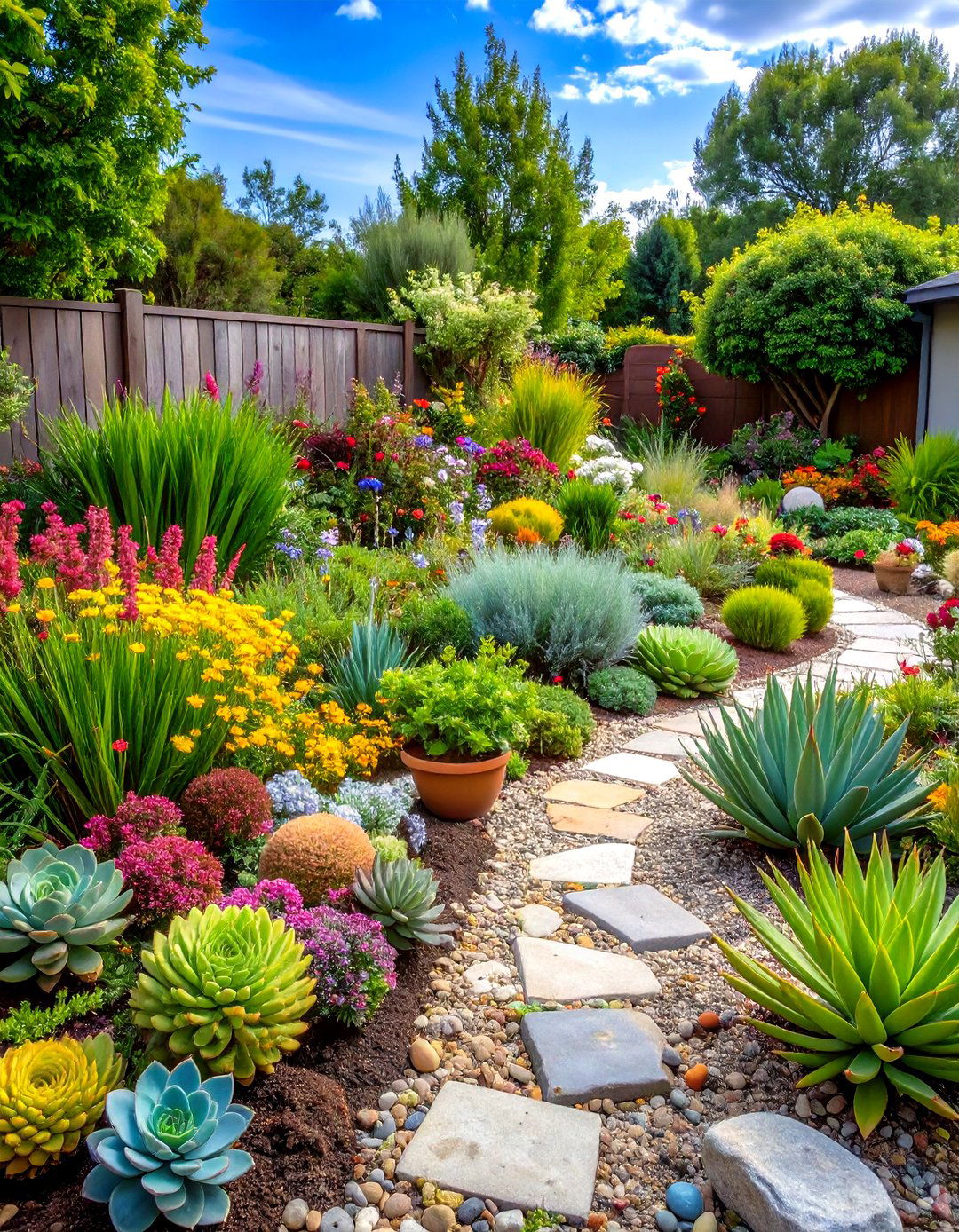
Low-maintenance succulent gardens create striking centerpieces featuring diverse forms, colors, and textures that provide year-round interest with minimal water requirements, perfect for dry climates or busy gardeners. These drought-tolerant displays work well in containers, raised beds, or dedicated garden areas where their architectural qualities can be appreciated while requiring little ongoing maintenance. Combine succulents with different growth habits, from rosette-forming echeveria and agave to trailing sedums and upright euphorbias, creating compositions that highlight the incredible diversity within this plant family. Use decorative mulches like colored gravel, river rocks, or decomposed granite to set off succulent forms while providing excellent drainage that these plants require for healthy growth. Design succulent centerpieces with seasonal interest in mind, selecting varieties that flower at different times or change colors throughout the year, creating focal points that remain attractive and engaging through all seasons while requiring minimal resources.
11. Pergola Garden Features
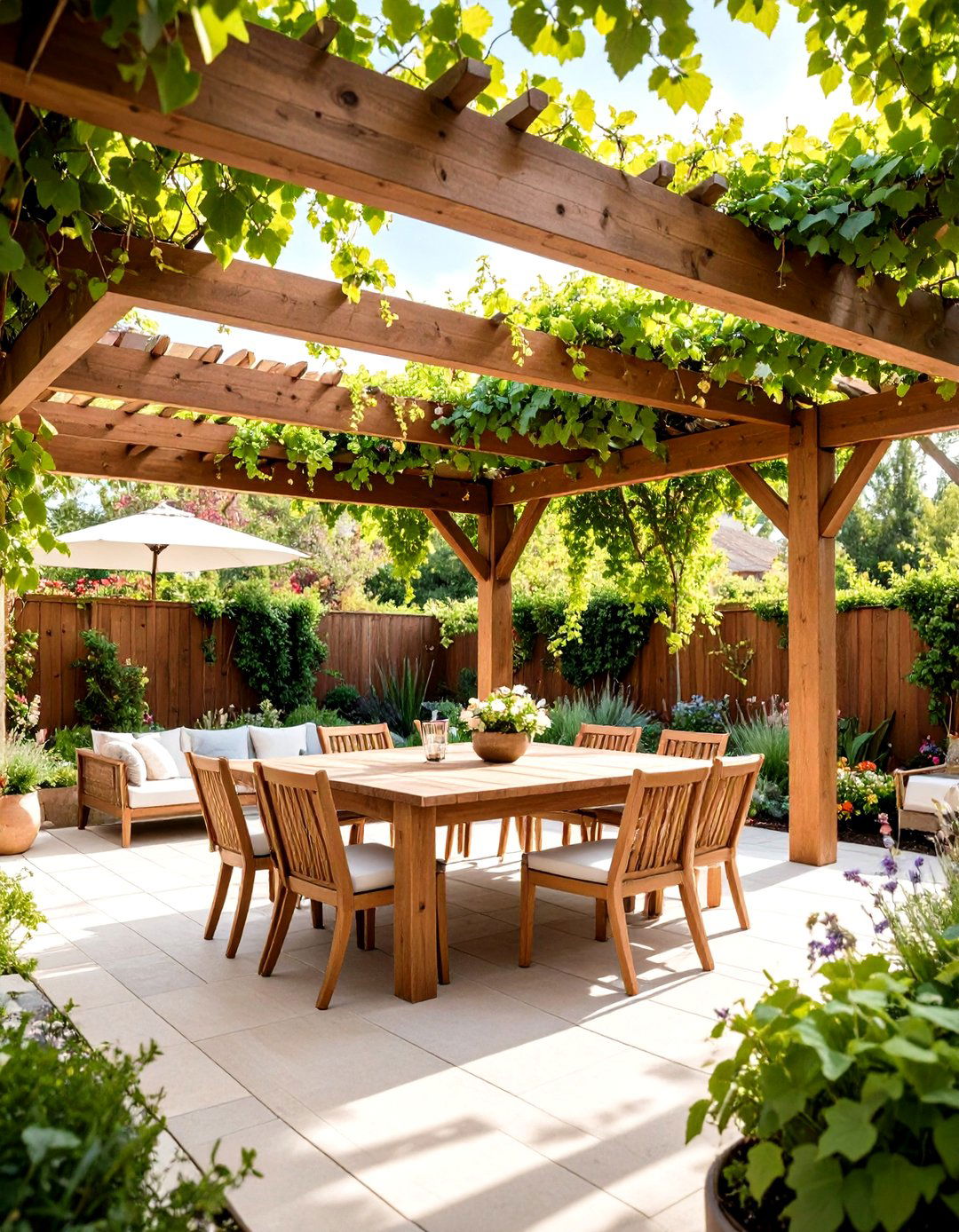
Overhead pergola structures create substantial centerpieces that define outdoor living spaces while providing partial shade and support for climbing plants that add seasonal beauty and privacy to garden areas. These architectural features work particularly well over patios, dining areas, or along walkways where they create intimate spaces within larger garden settings while serving as substantial focal points. Construct pergolas using cedar, redwood, or composite materials that withstand weather exposure while complementing your home's architectural style and existing landscape elements, ensuring proper proportions for the intended space. Train vigorous climbing plants like grapes, wisteria, or roses over pergola structures, creating living canopies that provide shade, fragrance, and seasonal color while integrating the structure naturally into your garden design. Position pergolas to frame views, create destination areas, or serve as transitions between different garden spaces, making them centerpieces that enhance both function and beauty in outdoor living areas.
12. Ornamental Grass Gardens
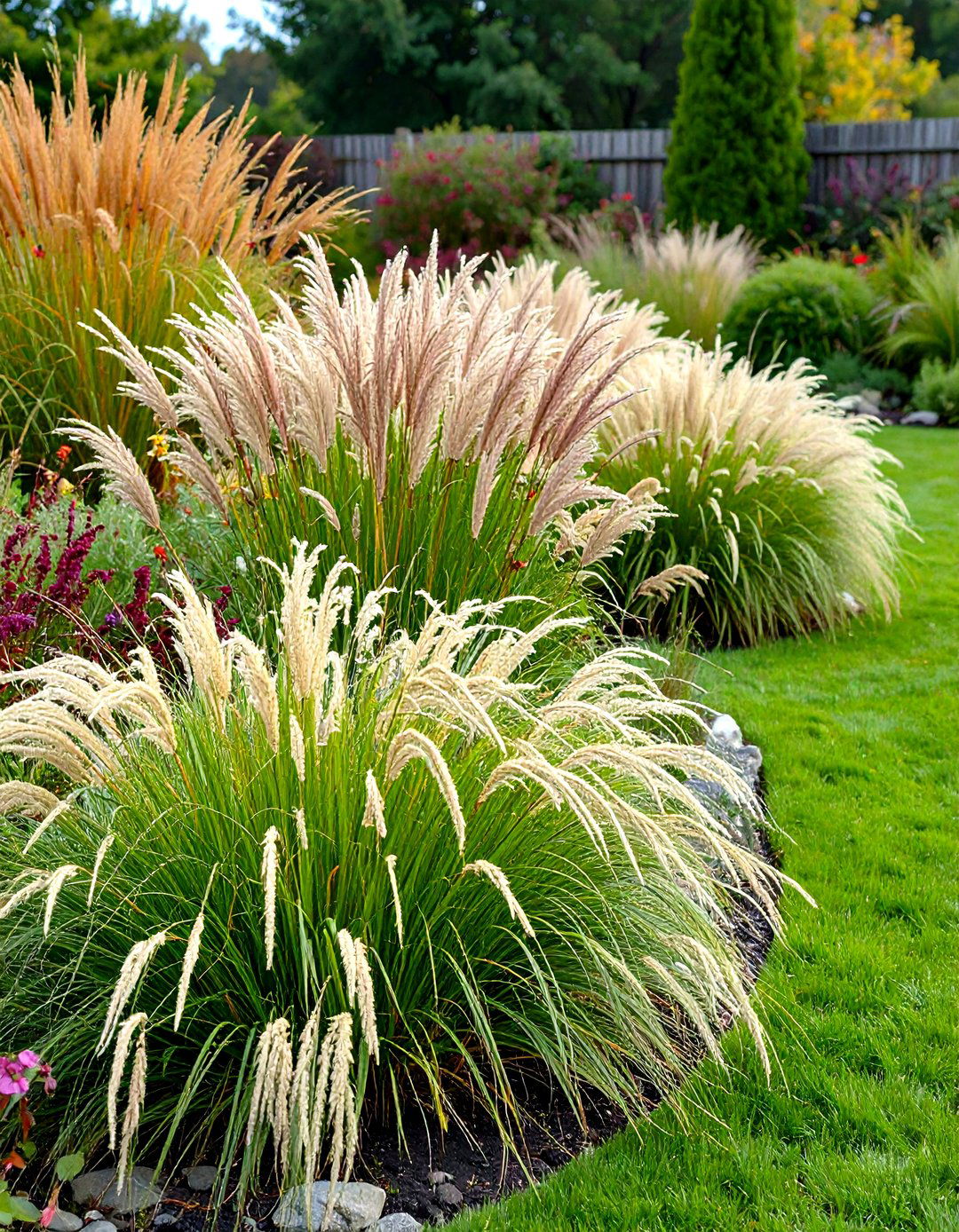
Dramatic ornamental grass plantings create movement-filled centerpieces that add texture, height, and seasonal interest while requiring minimal maintenance once established in appropriate locations. These dynamic focal points work well in contemporary and naturalistic garden designs, providing structure during growing seasons and attractive winter interest when many other plants have died back. Select grasses with different heights, textures, and seasonal characteristics, from fine-textured fountain grass to bold miscanthus varieties, creating compositions that change throughout the growing season and provide habitat for beneficial insects and birds. Include early, mid, and late-season grasses to ensure continuous interest, combined with complementary perennials or bulbs that enhance the grass display without competing with their graceful forms and movement. Position ornamental grass gardens where they can be backlit by morning or evening sun, which highlights their translucent qualities and creates stunning visual effects that make them compelling centerpieces in any garden setting.
13. Garden Arch Entryways

Decorative garden arches create inviting centerpieces that frame views, mark transitions, and provide vertical growing space while serving as attractive entrance features that welcome visitors into garden spaces. These structural elements work particularly well at pathway intersections, garden room entrances, or as standalone focal points that add height and architectural interest to flat landscapes. Choose arch styles that complement your garden's overall design, from rustic wooden structures for cottage gardens to sleek metal designs for contemporary spaces, ensuring proper proportions and sturdy construction that will support climbing plants safely. Cover arches with flowering vines like clematis, climbing roses, or honeysuckle that provide seasonal color and fragrance while creating living gateways that change throughout the growing season and attract beneficial pollinators. Position garden arches to frame attractive views beyond, create sense of mystery and discovery, or serve as destination points that draw visitors deeper into garden spaces while functioning as striking centerpieces.
14. Bird Bath and Wildlife Gardens
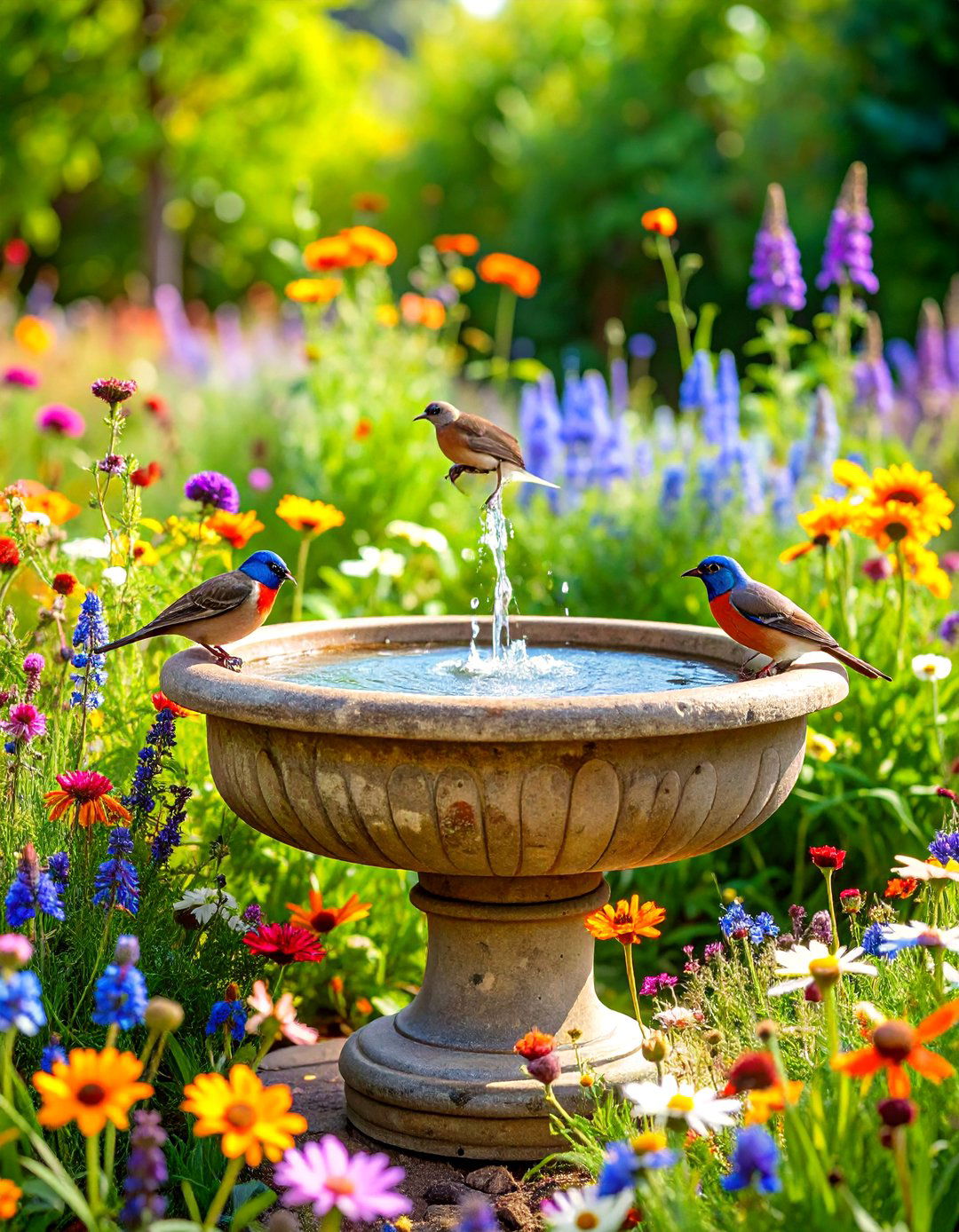
Wildlife-friendly centerpieces featuring bird baths surrounded by native plants create focal points that attract beneficial creatures while providing educational opportunities and natural entertainment for garden observers. These ecological features work well in both formal and naturalistic garden settings, serving as magnets for birds, butterflies, and other wildlife that add life and movement to outdoor spaces. Include shallow water sources with textured surfaces that provide secure footing for different bird species, combined with plantings that offer food, shelter, and nesting materials throughout various seasons, creating comprehensive habitat within your garden design. Select native plants that bloom at different times, produce seeds or berries, and provide diverse forms that support various wildlife species while creating attractive compositions around your water feature centerpiece. Position wildlife gardens where they can be observed from indoor windows or outdoor seating areas, creating opportunities for nature watching while establishing centerpieces that contribute to local ecosystems and environmental stewardship.
15. Zen Garden Meditation Spaces
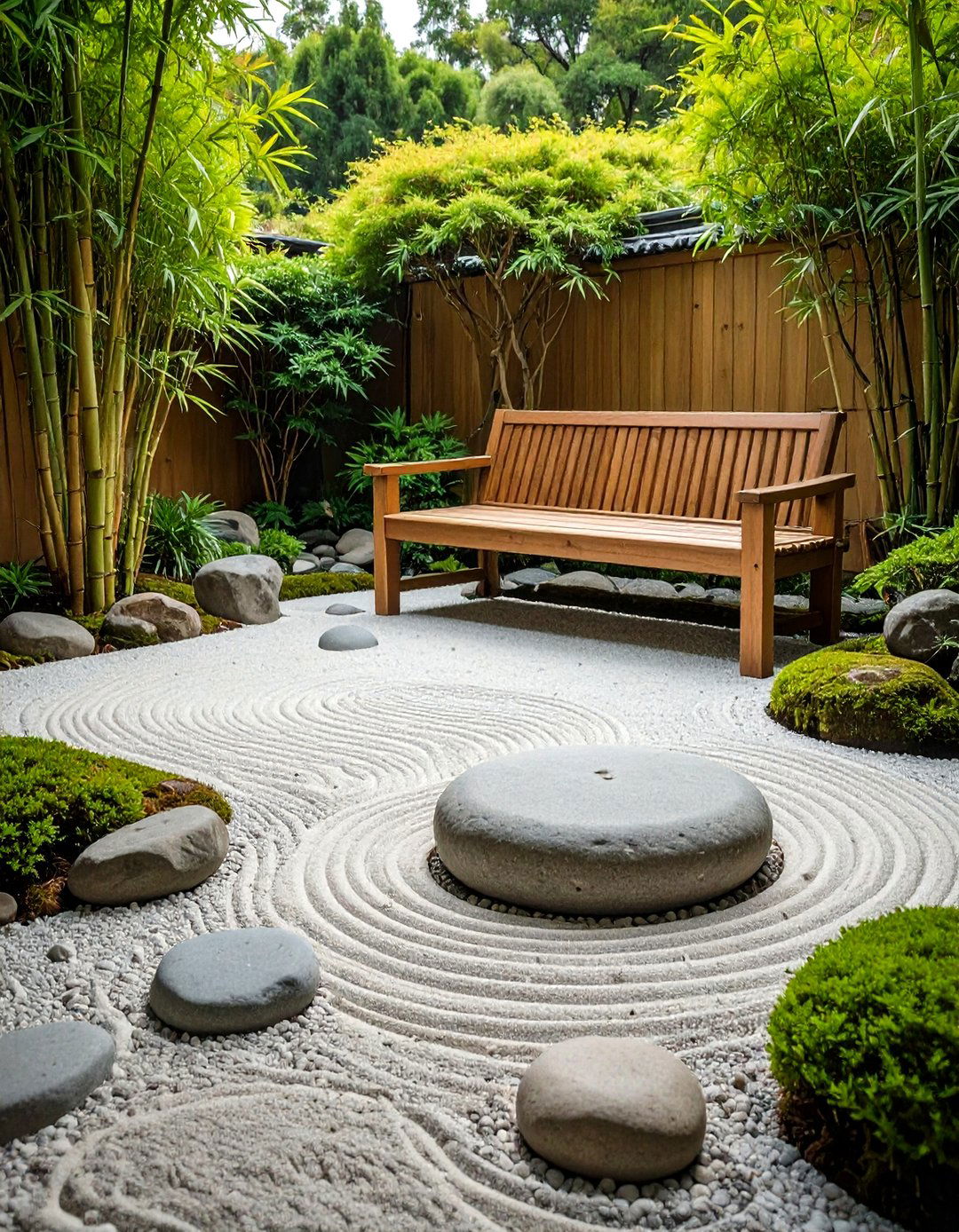
Minimalist zen gardens create peaceful centerpieces focused on simplicity, natural materials, and contemplative design elements that provide spaces for reflection and meditation within busy outdoor environments. These serene focal points emphasize texture, form, and careful plant selection rather than colorful displays, creating restful areas that complement rather than compete with surrounding garden elements. Include elements like raked gravel, carefully placed stones, simple water features, and plants with strong architectural forms such as bamboo, ornamental grasses, or evergreen shrubs that maintain interest throughout all seasons. Use natural materials like weathered wood, river stones, and decomposed granite to create pathways, seating areas, and definition within zen garden centerpieces, ensuring maintenance requirements remain minimal to preserve the peaceful, uncluttered aesthetic. Position meditation gardens in quiet areas of your landscape where they can serve as retreats from daily activities, creating centerpieces that promote wellness and mindfulness while adding sophisticated design elements to outdoor spaces.
16. Seasonal Flower Displays
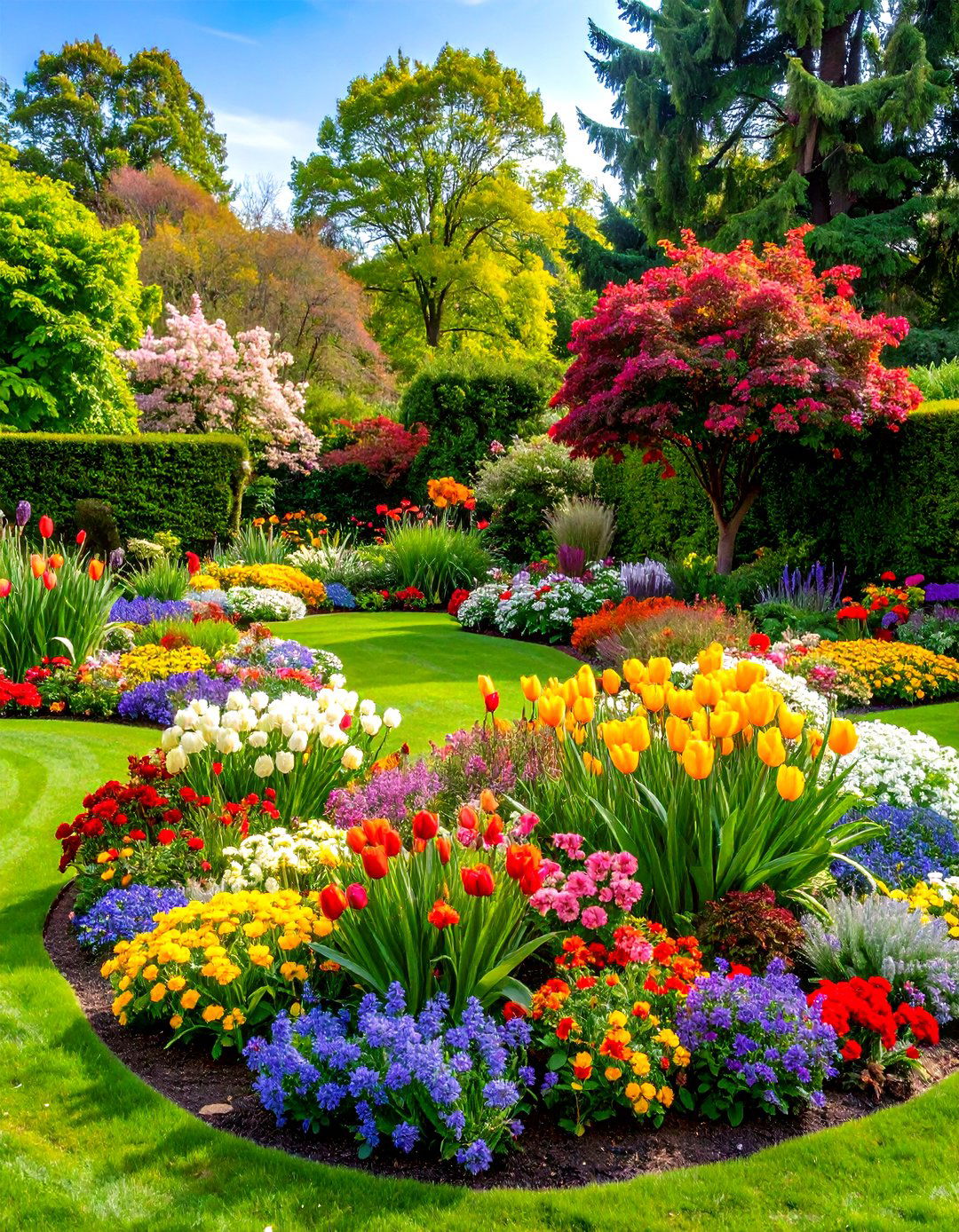
Dynamic seasonal flower gardens create ever-changing centerpieces that provide continuous color and interest throughout the growing season while offering opportunities to experiment with different plant combinations and design themes. These temporary displays work well in dedicated beds, large containers, or formal garden areas where seasonal plantings can be easily changed and refreshed as needed. Plan seasonal displays using succession planting techniques, incorporating spring bulbs, summer annuals, fall mums, and winter evergreens to ensure your centerpiece remains attractive throughout the year while showcasing different plant families and growing characteristics. Include plants with different bloom times, heights, and forms to create layered compositions that change weekly and monthly, keeping your garden centerpiece fresh and engaging while providing cutting flowers for indoor arrangements. Design seasonal displays with specific color schemes or themes that complement your garden's overall aesthetic while allowing for creative experimentation and seasonal celebration through thoughtfully planned plant combinations.
17. Vertical Garden Walls
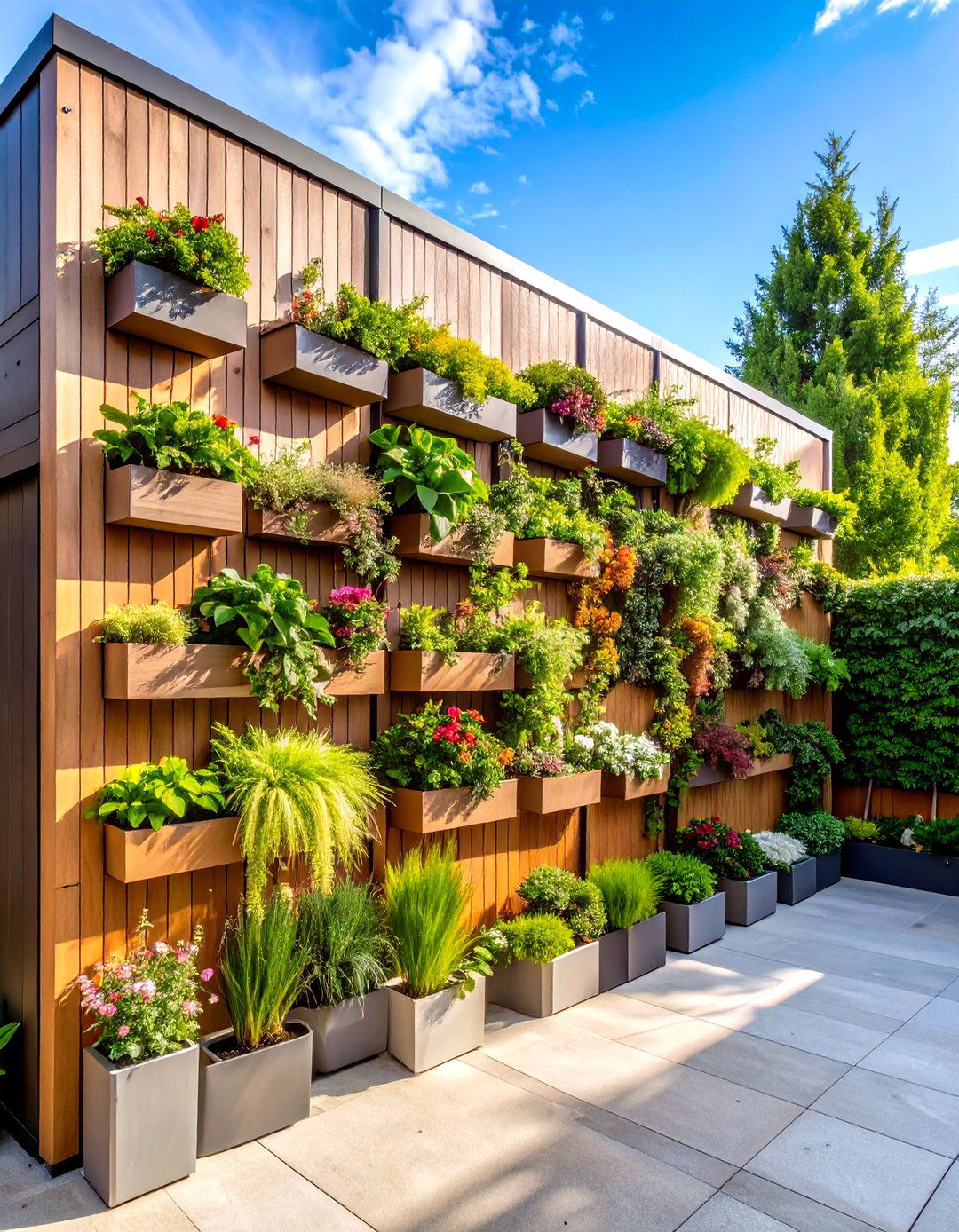
Living wall installations create dramatic centerpieces that maximize growing space while adding striking architectural elements to gardens with limited horizontal space or areas requiring privacy screening. These innovative features work particularly well in urban settings, small courtyards, or areas where traditional garden beds aren't practical while providing growing opportunities for various plant types. Construct vertical gardens using modular systems, pocket planters, or custom-built structures that ensure proper drainage and irrigation while supporting plants at different heights and exposures within the same installation. Select plants appropriate for vertical growing conditions, including trailing varieties, compact perennials, and plants that adapt well to container culture while creating attractive compositions that remain healthy in vertical orientations. Include irrigation systems that distribute water efficiently throughout the vertical garden structure, ensuring all plants receive adequate moisture while preventing water waste and maintaining the centerpiece's health and appearance throughout growing seasons.
18. Rock Garden Alpine Features
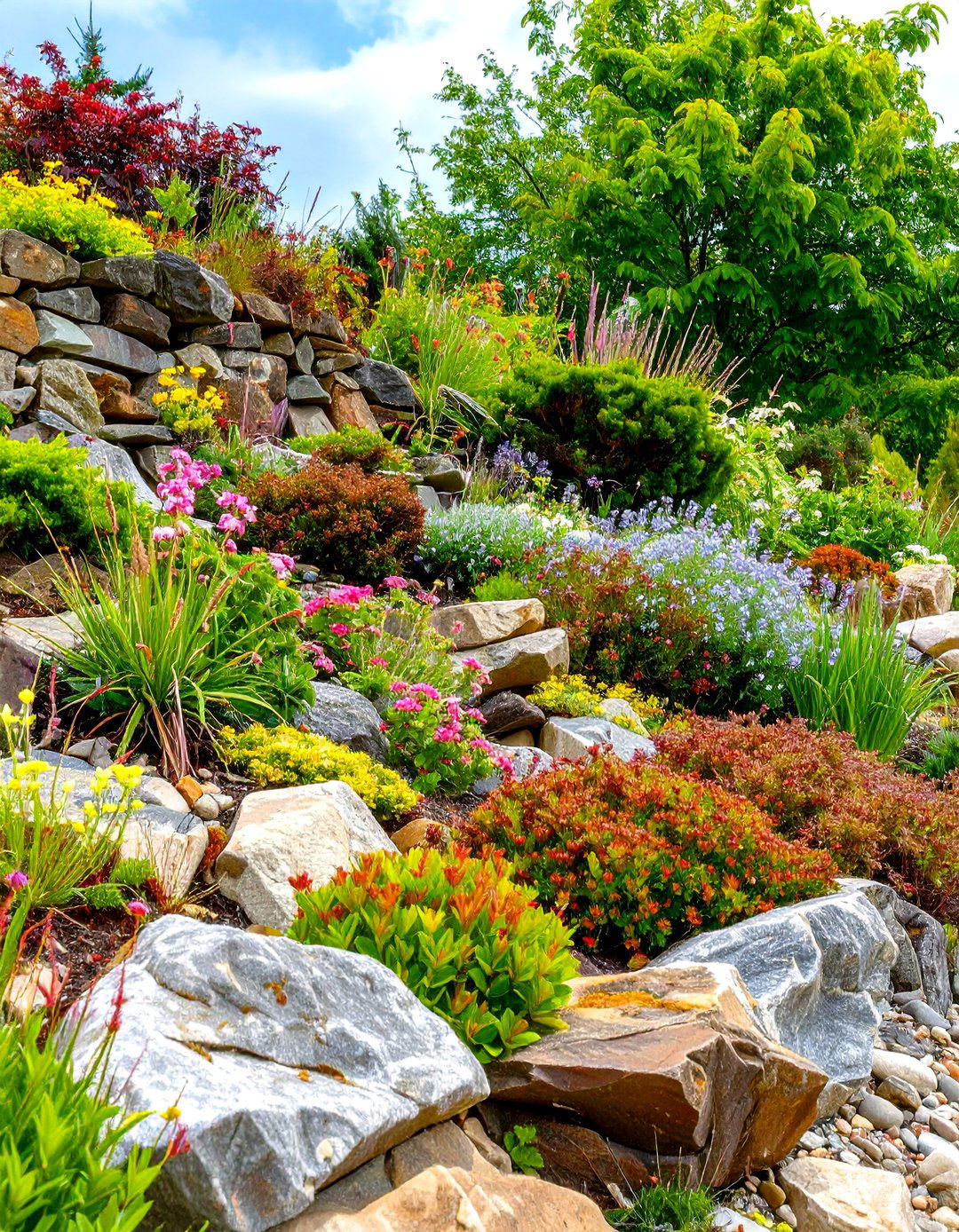
Naturalistic rock gardens create textured centerpieces that showcase alpine plants, interesting stone formations, and drainage-loving plants while adding geological interest to flat or sloped garden areas. These permanent features work well in areas with challenging growing conditions, steep slopes, or locations where traditional garden beds might struggle while providing habitat for specialized plant communities. Select rocks and stones that complement your local geology while creating natural-looking arrangements with varied sizes, textures, and placement that mimic natural outcropping formations found in mountainous regions. Include alpine plants, native wildflowers, and drought-tolerant perennials that thrive in well-draining conditions while providing seasonal interest through flowers, foliage, and seed heads that attract beneficial insects and birds. Design rock gardens with pathways, seating areas, or viewing points that allow close observation of plants and geological features, creating educational centerpieces that demonstrate sustainable gardening practices while adding unique beauty to landscape designs.
19. Edible Landscape Centerpieces

Productive edible gardens serve as attractive centerpieces that combine ornamental qualities with food production, creating focal points that provide fresh ingredients while demonstrating sustainable gardening practices. These functional displays work well in various garden styles, from formal potager designs to naturalistic food forests that integrate edible plants seamlessly into landscape compositions. Include vegetables, fruits, and herbs with attractive foliage, flowers, or forms that contribute to the overall aesthetic while providing harvests throughout growing seasons, such as colorful chard, flowering beans, or fruit trees with spring blossoms. Design edible centerpieces with succession planting and companion planting techniques that maintain continuous harvests while creating plant combinations that support each other's growth and pest management naturally, reducing maintenance requirements while maximizing productivity. Position edible gardens near outdoor dining areas, kitchen windows, or along frequently used pathways where harvesting is convenient while creating centerpieces that celebrate the connection between gardening and cooking.
20. Garden Room Dividers
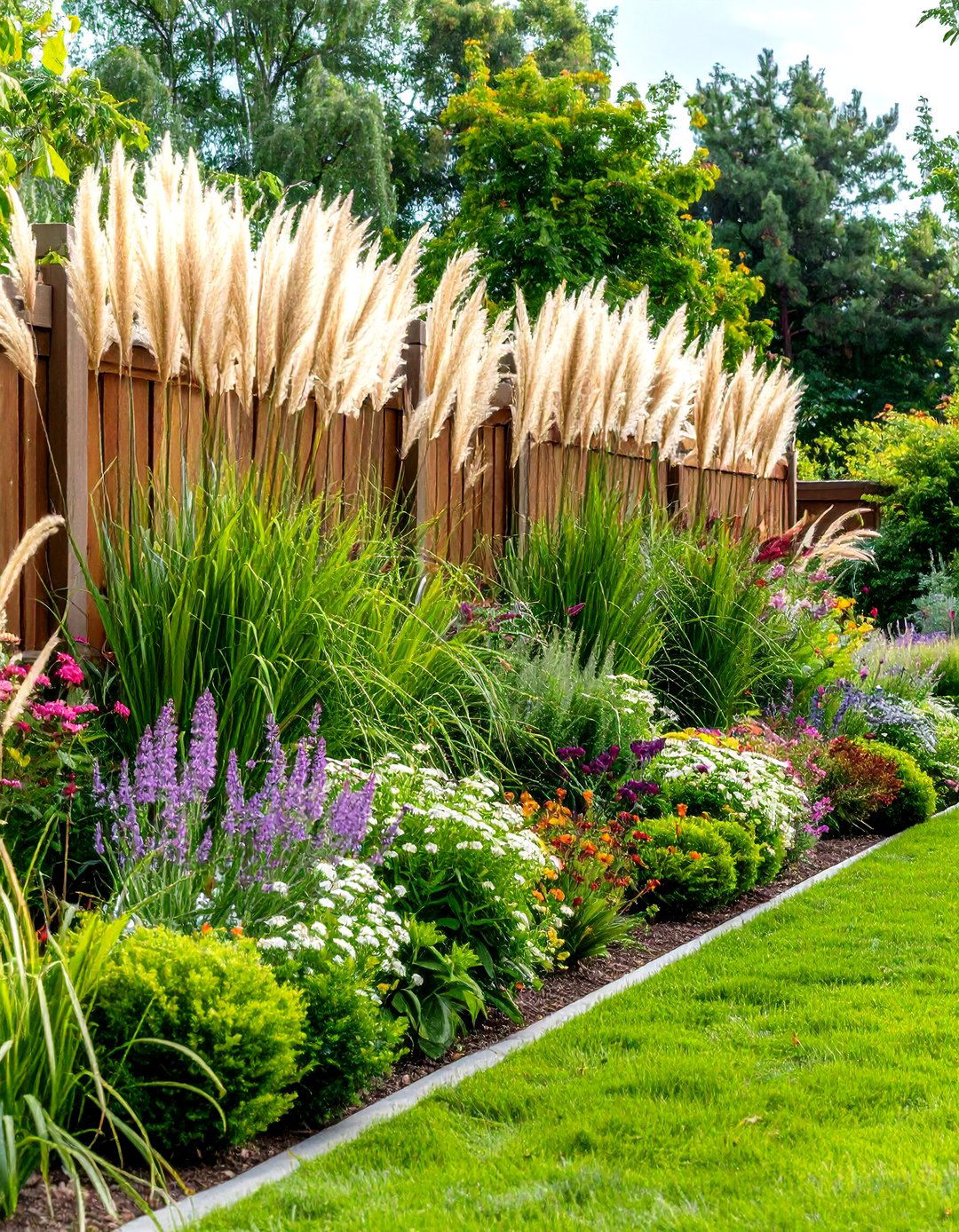
Structured plantings or architectural elements create centerpieces that divide large garden spaces into intimate rooms while providing privacy, wind protection, and backdrop features for other garden elements. These functional focal points work well in expansive landscapes where creating defined spaces improves usability while adding vertical interest and plant diversity to garden designs. Use tall perennials, ornamental grasses, or mixed plantings that provide screening during growing seasons while maintaining attractive winter structure when deciduous plants lose their leaves, ensuring year-round functionality and beauty. Include maintenance pathways and access points that allow easy care of room divider plantings while ensuring proper spacing for healthy plant development and air circulation that prevents disease problems in dense plantings. Design garden room dividers with openings, windows, or partial screening that create intrigue and visual connections between spaces while serving as substantial centerpieces that anchor different areas of your garden and provide structure for overall landscape composition.
21. Contemporary Steel Planters

Industrial-style metal planters create bold centerpieces that bring modern aesthetic appeal to garden designs while providing excellent growing conditions and weather resistance for planted displays. These durable containers work particularly well in contemporary landscapes, urban settings, or areas where traditional materials might feel inappropriate while offering long-term value and minimal maintenance requirements. Choose corten steel, stainless steel, or powder-coated aluminum planters in geometric forms that complement modern architecture while providing adequate root space and drainage for healthy plant growth over many seasons. Fill steel planters with architectural plants that complement the industrial aesthetic, such as ornamental grasses, bold perennials, or structural evergreens that create striking contrasts with metal containers while maintaining clean, sophisticated appearances. Position contemporary planters strategically to define outdoor spaces, create focal points, or serve as sculptural elements that enhance modern garden designs while providing practical growing space for selected plant collections.
22. Water Feature Bubbler Gardens
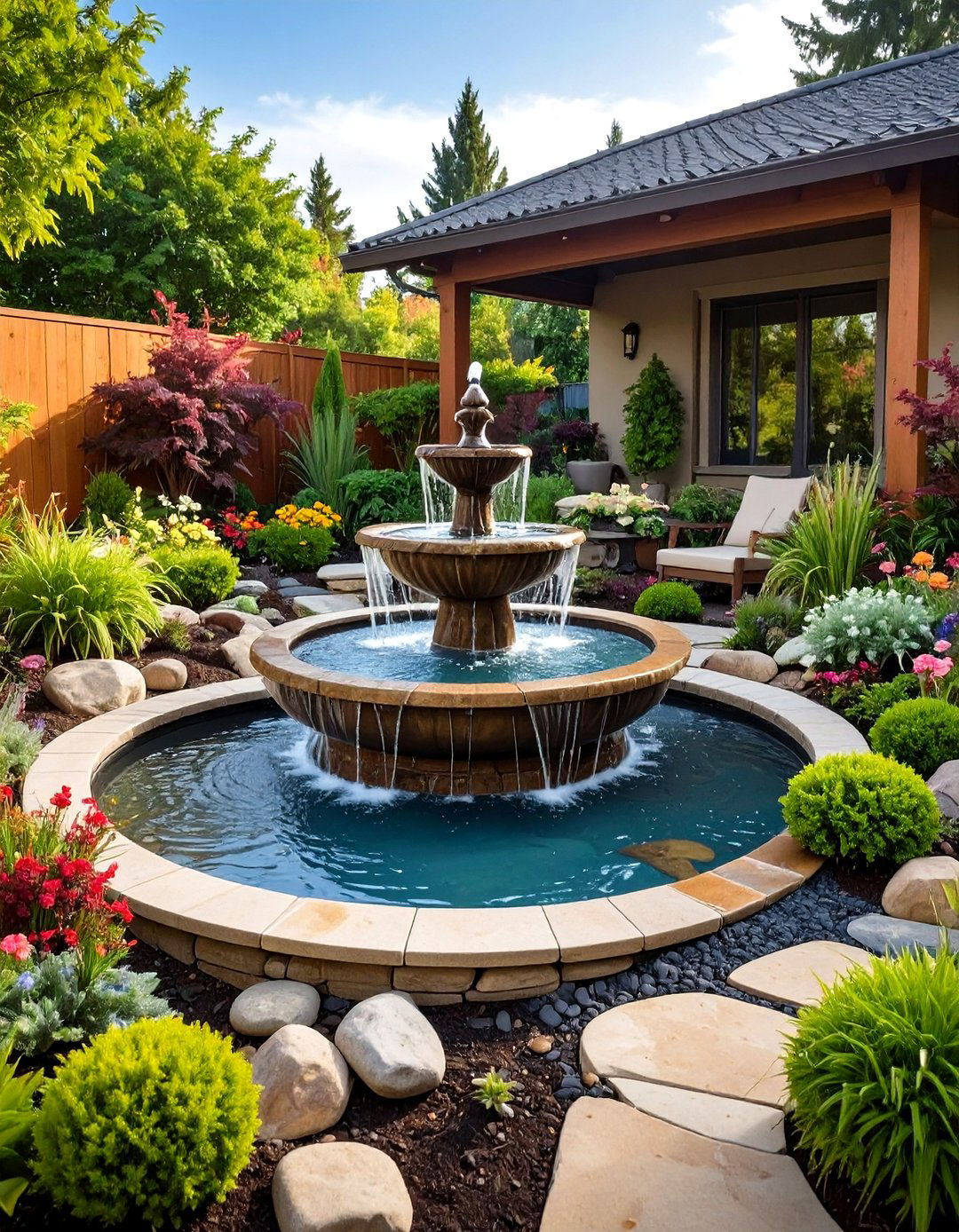
Subtle water features that bubble up through decorative rocks or gravel create calming centerpieces that add sound and movement without requiring extensive installation or maintenance commitments. These simple water elements work well in various garden settings, from formal to naturalistic, while providing wildlife habitat and cooling effects during hot weather. Include recirculating pump systems hidden beneath decorative stone mulches that create gentle bubbling effects while conserving water and requiring minimal electricity to operate, making them environmentally responsible centerpiece choices. Surround bubbler features with moisture-loving plants that benefit from increased local humidity while creating lush compositions that contrast beautifully with clean stone mulches and highlight the water element within garden settings. Position water bubblers where their subtle sounds can be appreciated from seating areas or along pathways while ensuring easy access for maintenance and seasonal adjustments that keep these centerpieces functioning properly throughout active gardening seasons.
23. Topiary and Formal Gardens
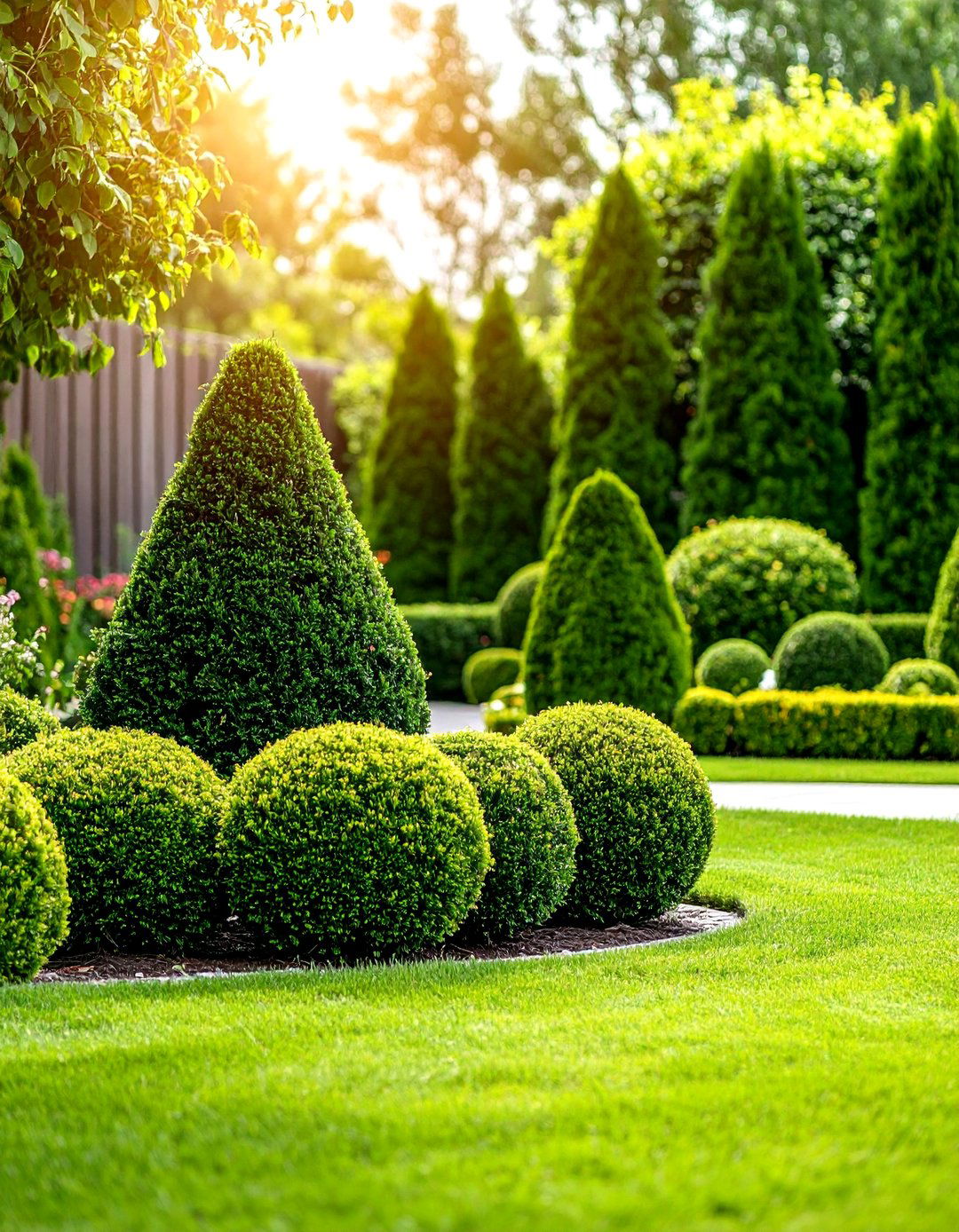
Sculpted plants create sophisticated centerpieces that demonstrate gardening skill while providing year-round structure and formal elegance to garden designs, particularly in traditional or Mediterranean-style landscapes. These living sculptures work well as single specimens or grouped arrangements that create rhythm and repetition within formal garden layouts while serving as architectural focal points. Select plants with dense growth habits and small leaves that respond well to regular pruning, such as boxwood, yew, or privet, ensuring healthy plant selection that will develop into attractive topiary forms over time with consistent care. Include maintenance schedules that ensure topiary centerpieces maintain their intended shapes while promoting healthy growth and preventing pest or disease problems that could damage these valuable garden investments over time. Position formal topiary features at garden entrances, pathway intersections, or as central focal points within formal bed arrangements, creating centerpieces that anchor sophisticated garden designs while demonstrating commitment to traditional gardening practices and horticultural excellence.
24. Garden Greenhouse Features

Small greenhouse structures or cold frames create functional centerpieces that extend growing seasons while providing attractive architectural focal points and educational opportunities for gardeners interested in season extension and plant propagation. These practical features work well in productive garden areas where they serve both ornamental and functional purposes while demonstrating sustainable gardening practices and self-sufficiency in food production. Include ventilation systems, staging areas, and storage solutions that make greenhouse centerpieces efficient and attractive while providing protected growing space for seedlings, tender plants, and out-of-season crops that expand gardening possibilities. Select greenhouse styles and materials that complement existing garden architecture while providing adequate growing space and environmental control for intended plant collections, ensuring these centerpieces remain functional and attractive throughout all seasons. Position greenhouse features where they receive adequate sunlight while integrating well with garden circulation patterns and utility access, creating centerpieces that combine practical function with aesthetic appeal in productive landscape designs.
Conclusion:
Garden centerpieces transform ordinary outdoor spaces into extraordinary destinations that reflect personal style while providing functional benefits and year-round interest. Whether you choose water features for their soothing sounds, sculptural elements for artistic impact, or productive gardens for sustainable living, the right centerpiece creates lasting value and enjoyment. Consider maintenance requirements, seasonal changes, and integration with existing landscape elements when selecting centerpieces that will serve your garden well for years to come. These focal points offer opportunities to experiment with new plants, techniques, and design concepts while creating spaces that invite exploration and contemplation. Successful garden centerpieces balance aesthetic appeal with practical considerations, ensuring they enhance rather than overwhelm surrounding plantings and outdoor living areas. By thoughtfully selecting and positioning centerpieces that align with your gardening goals and lifestyle preferences, you create outdoor spaces that provide daily pleasure and serve as extensions of your indoor living areas throughout the seasons.



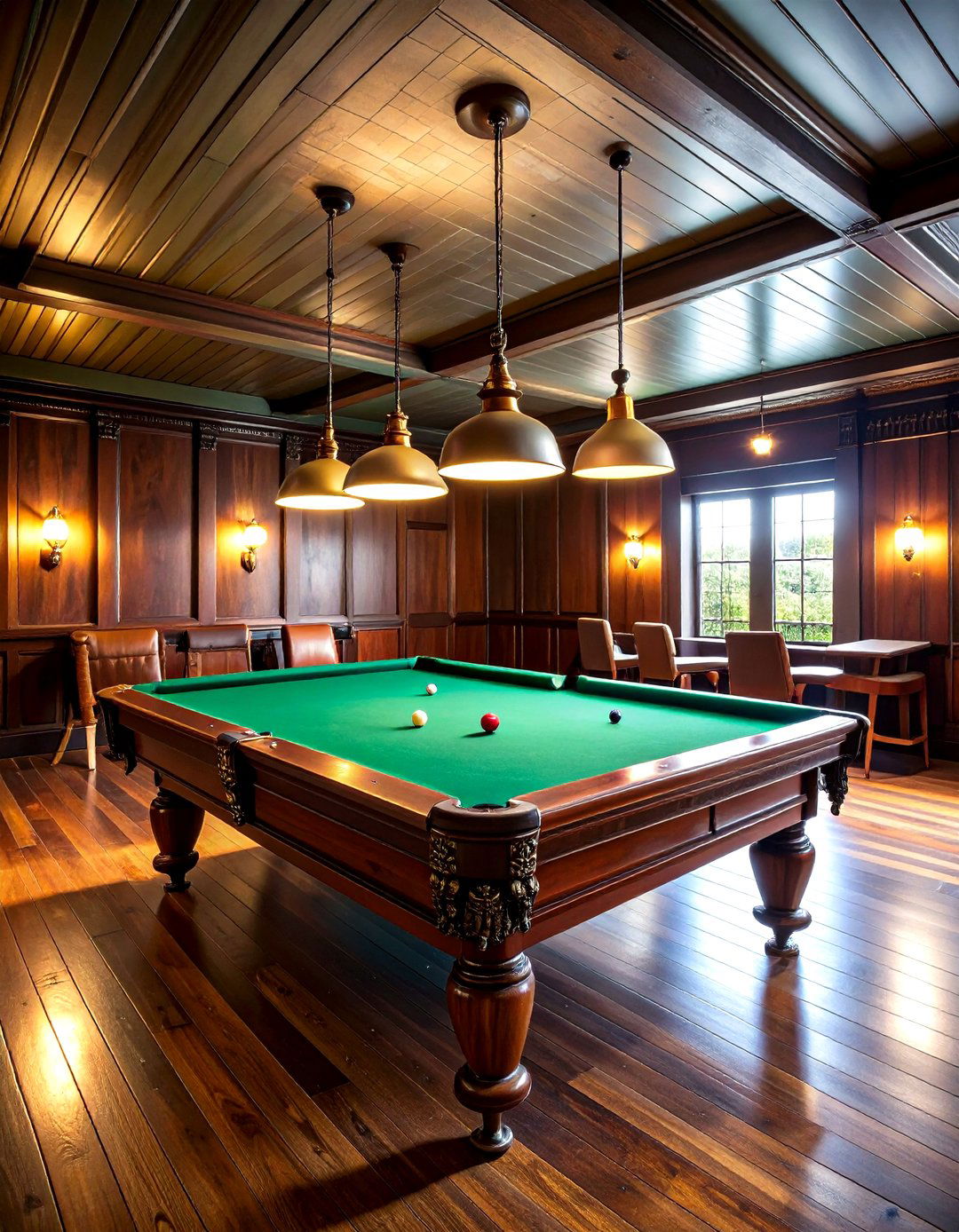
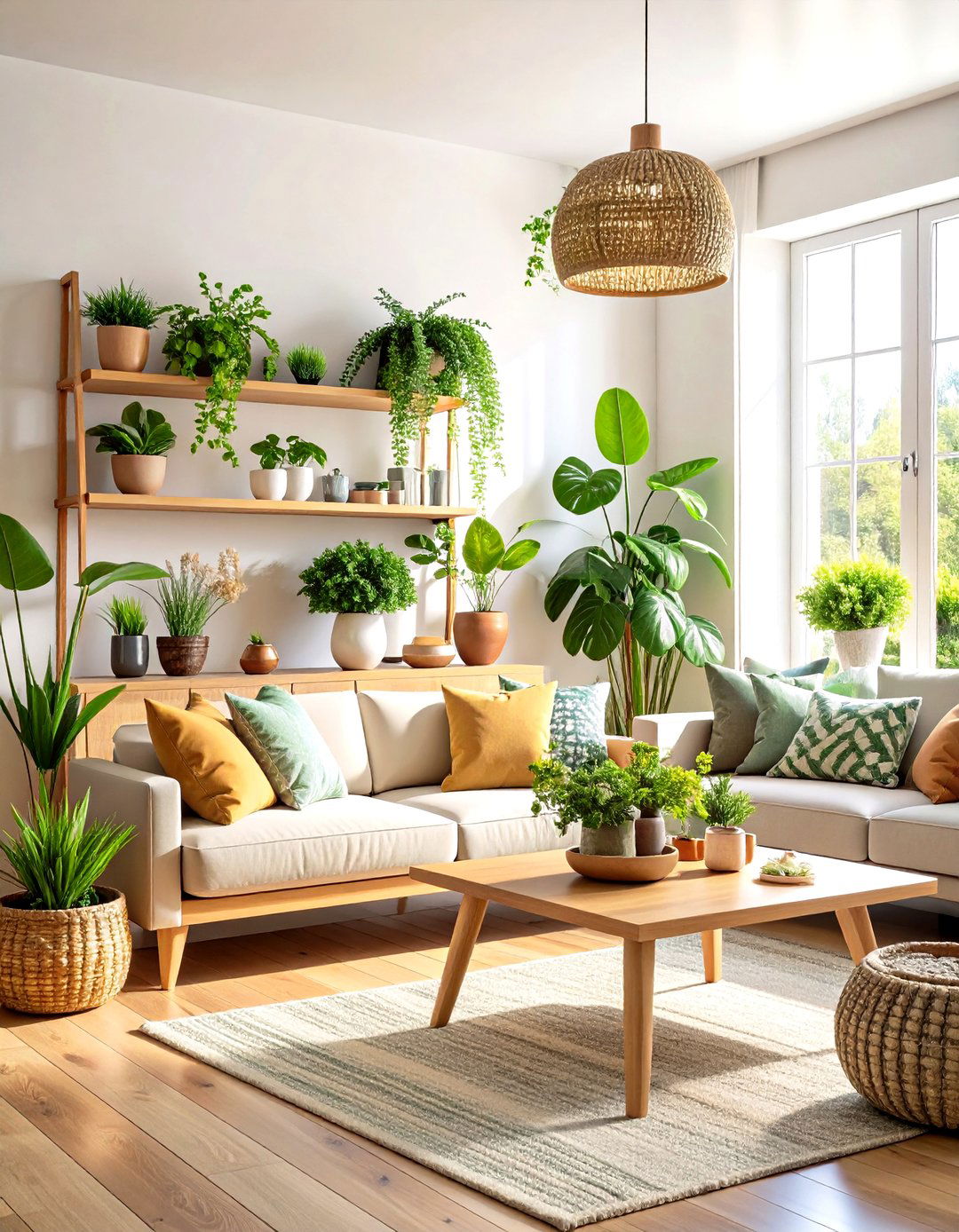
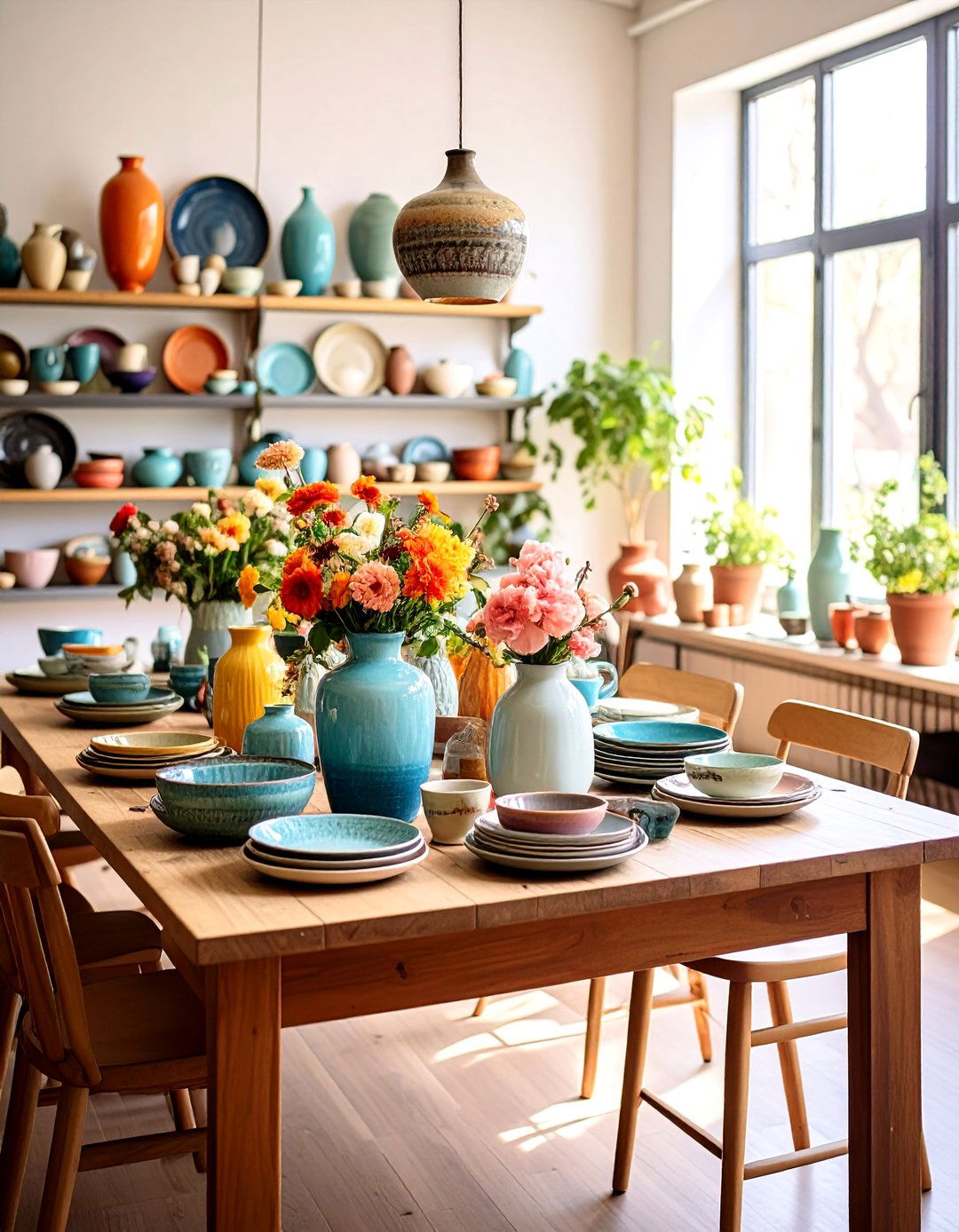
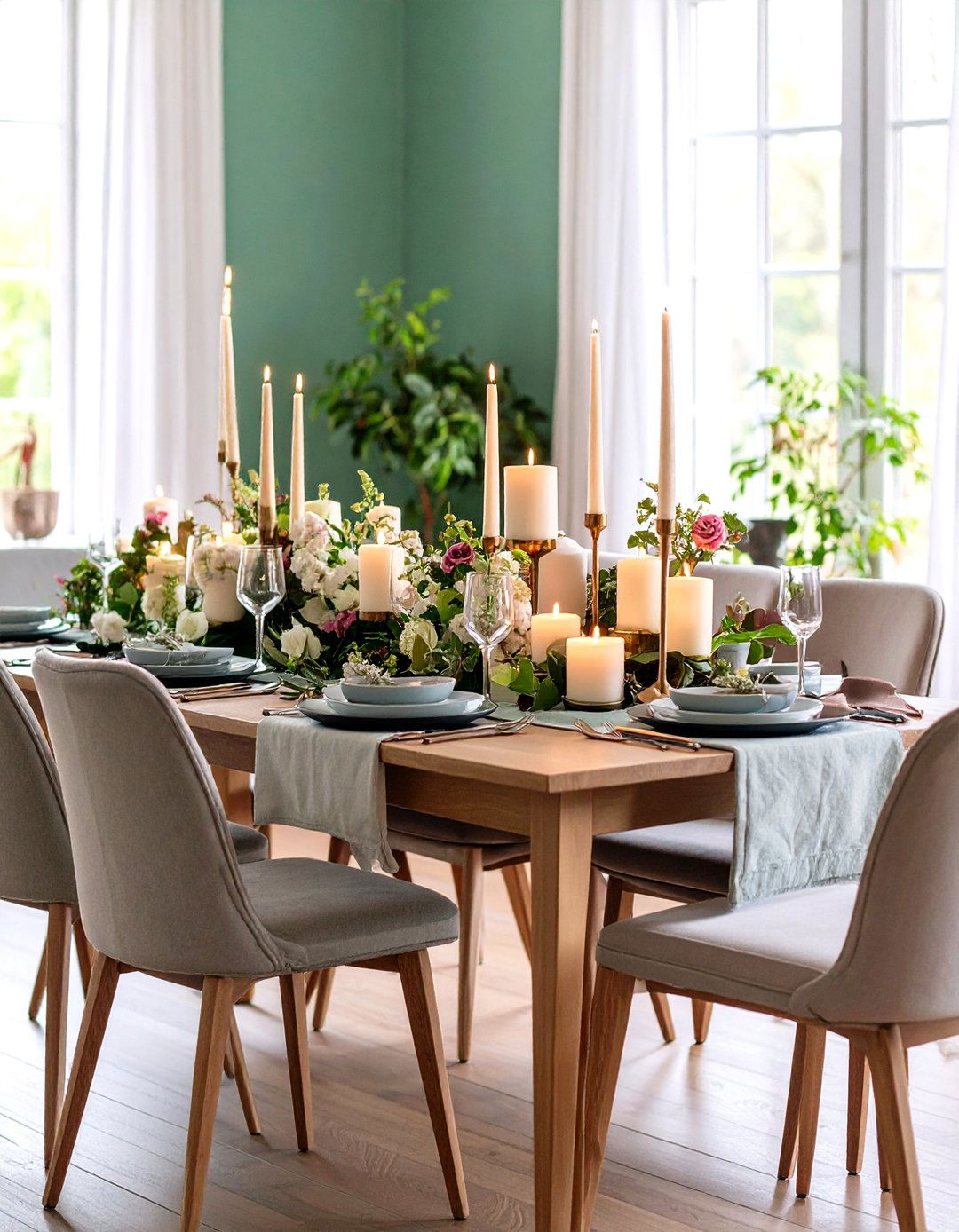
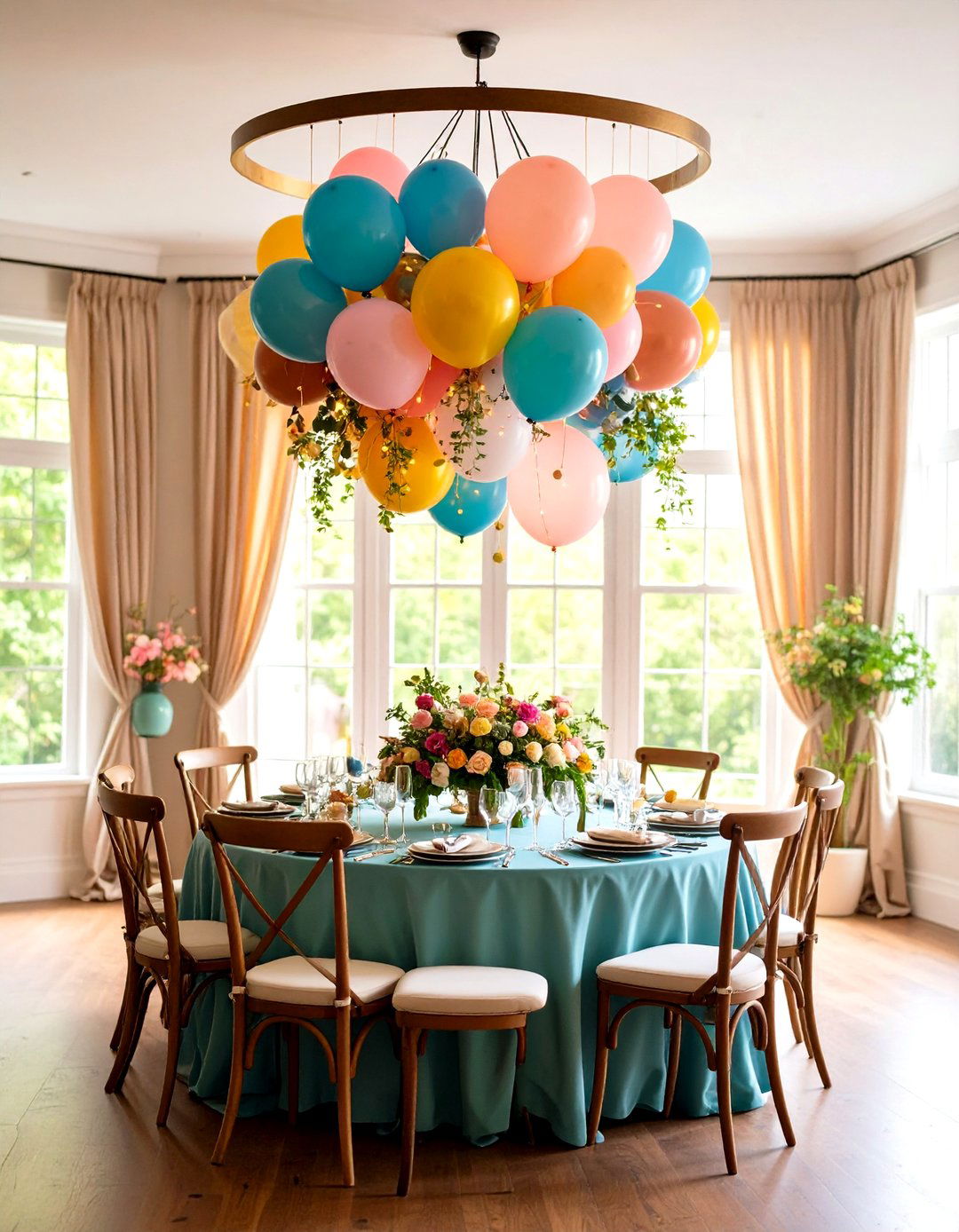



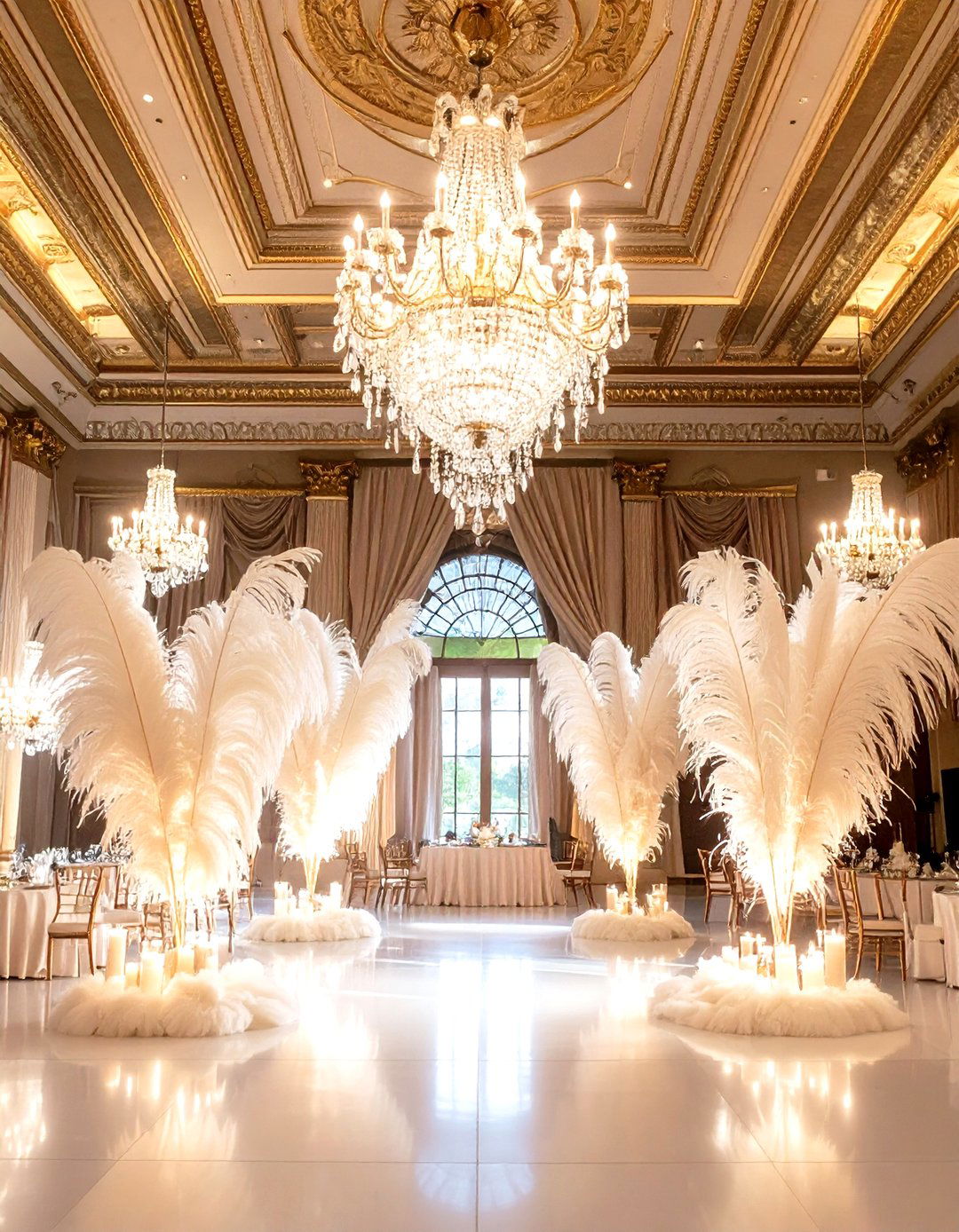
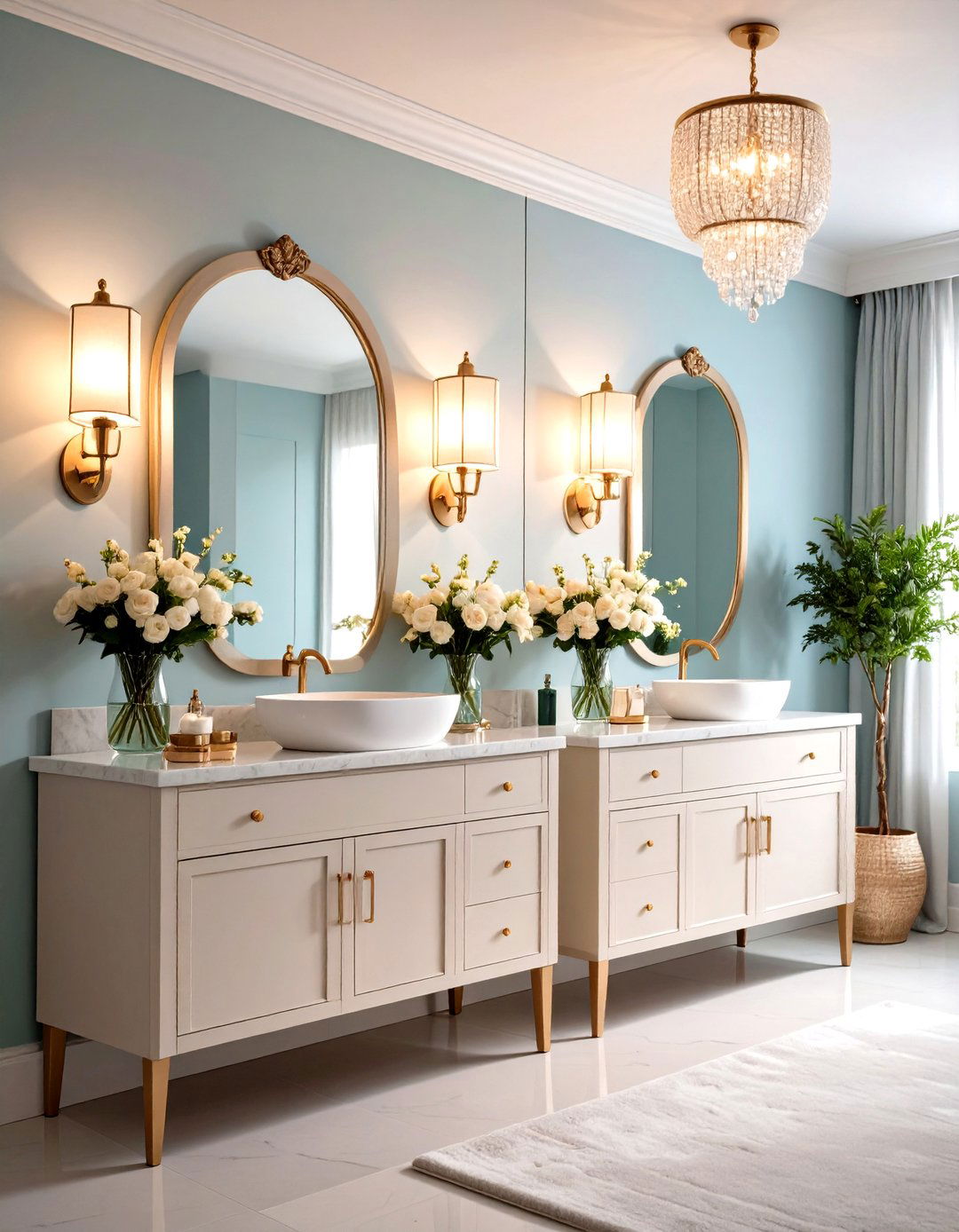

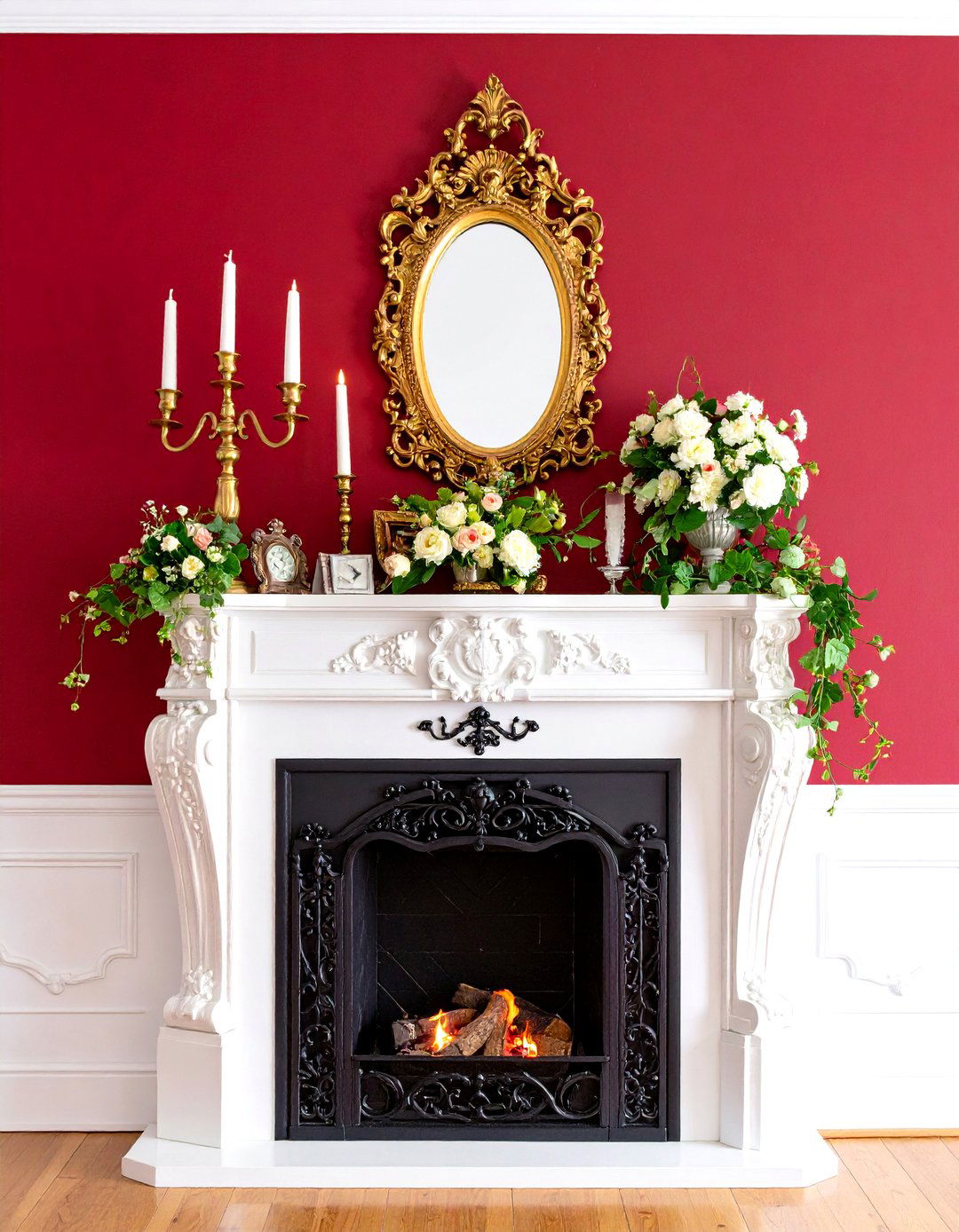

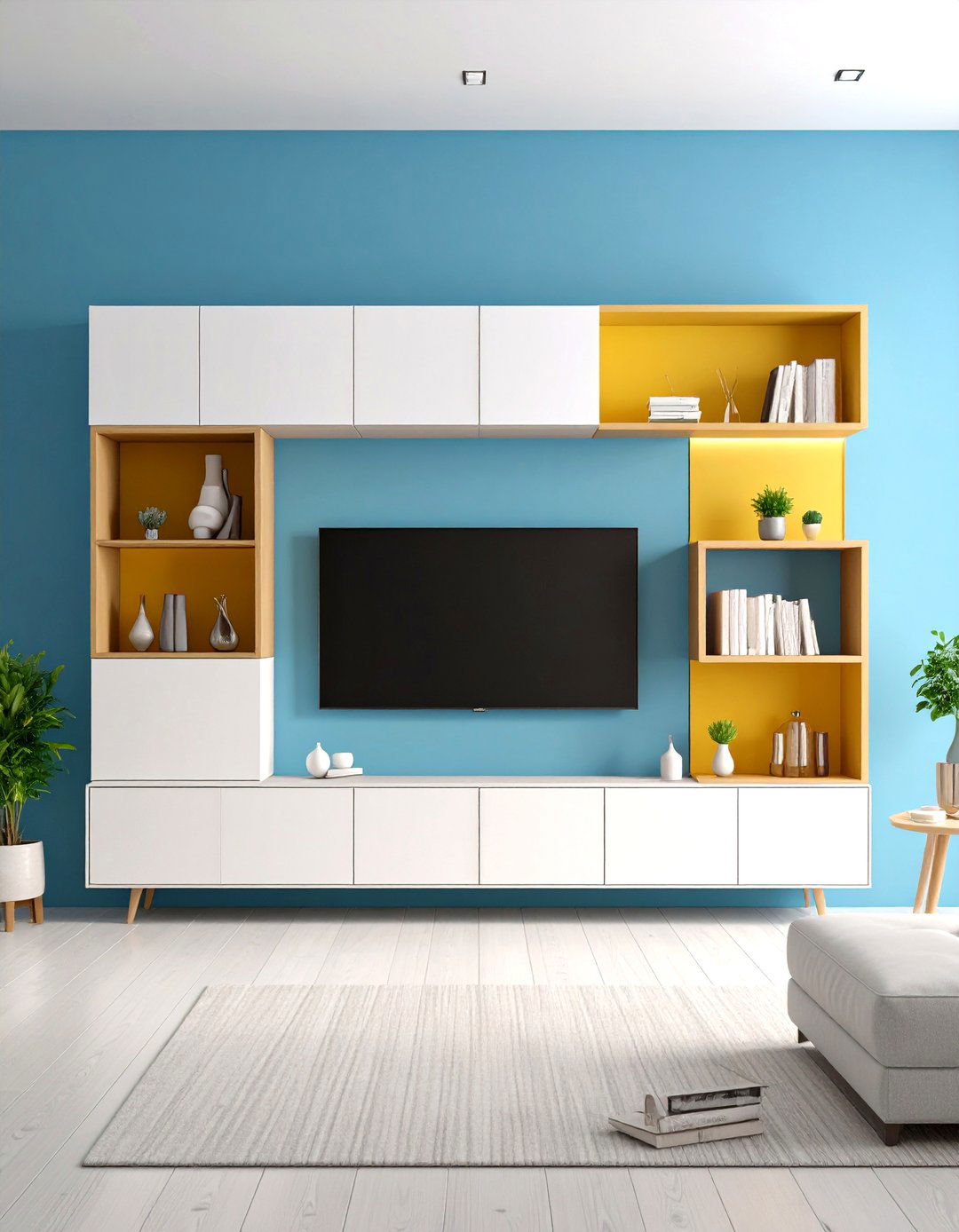

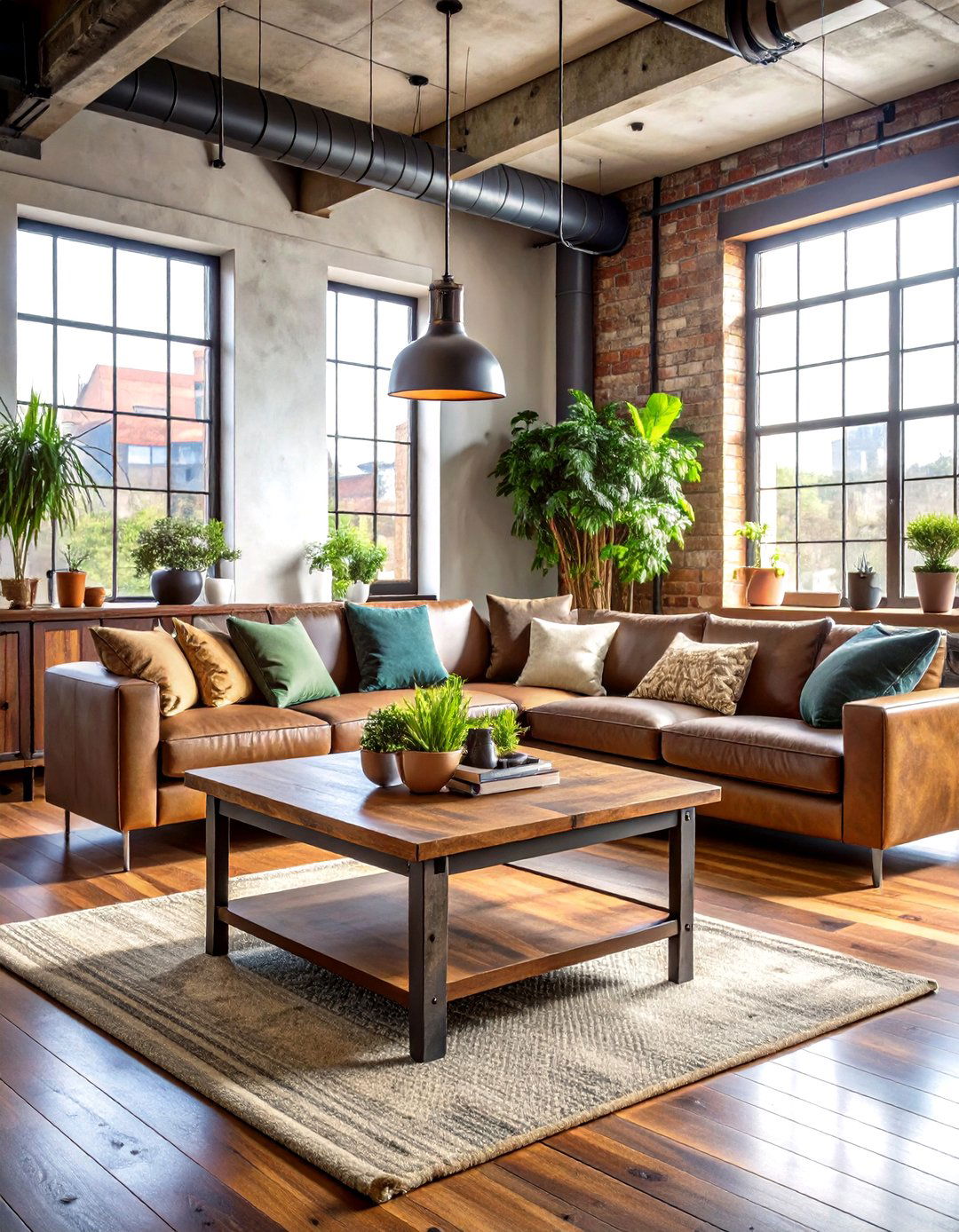
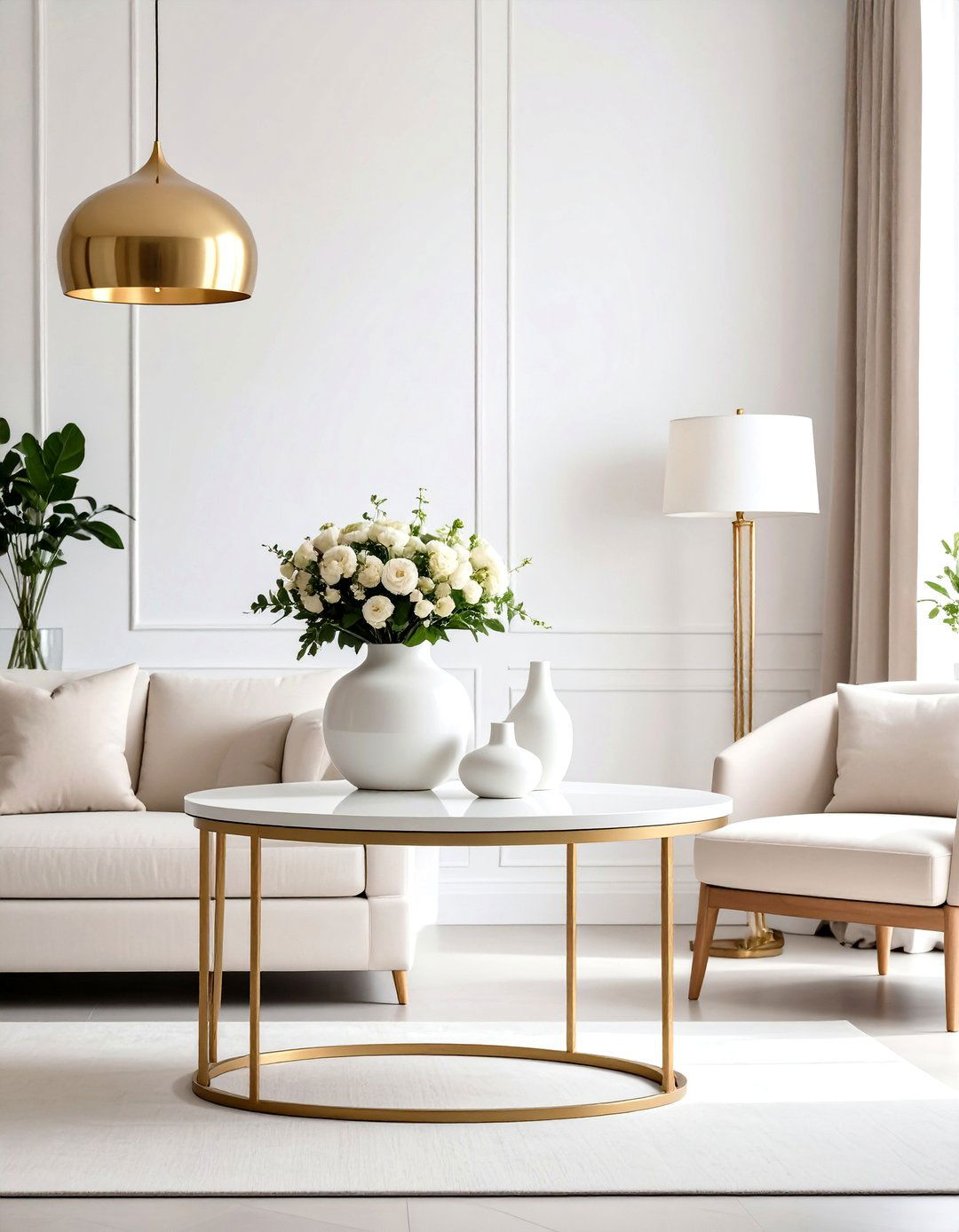
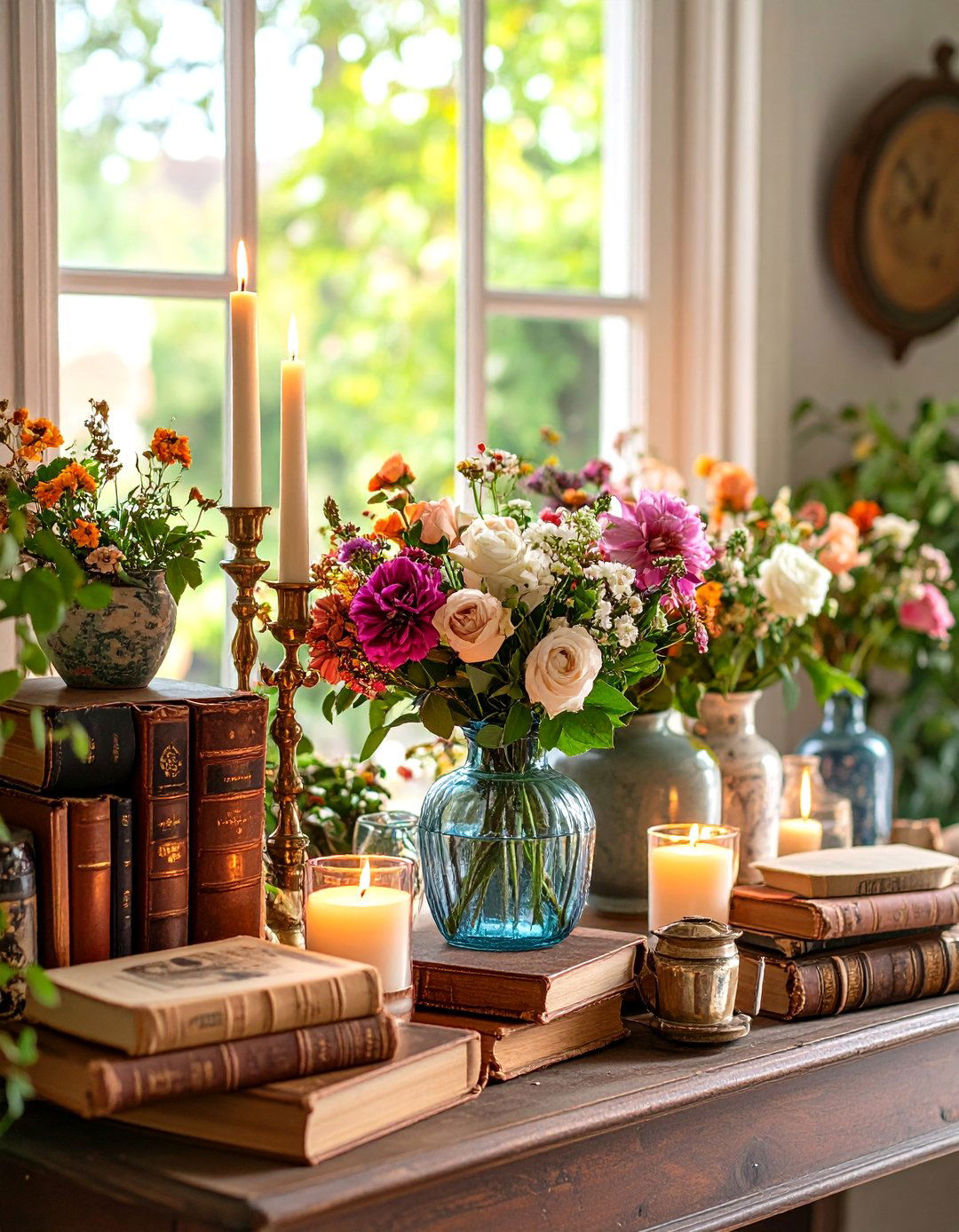
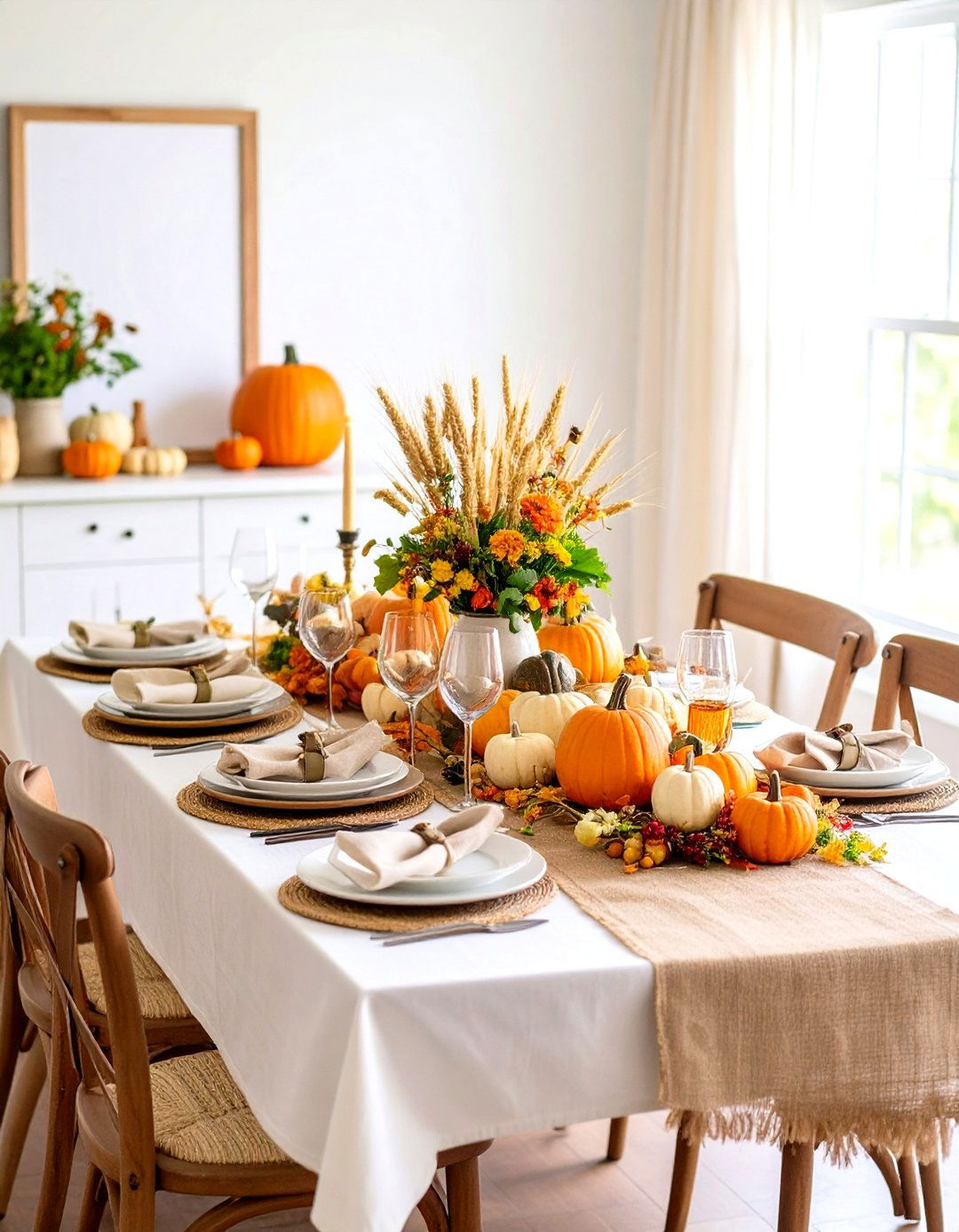
Leave a Reply